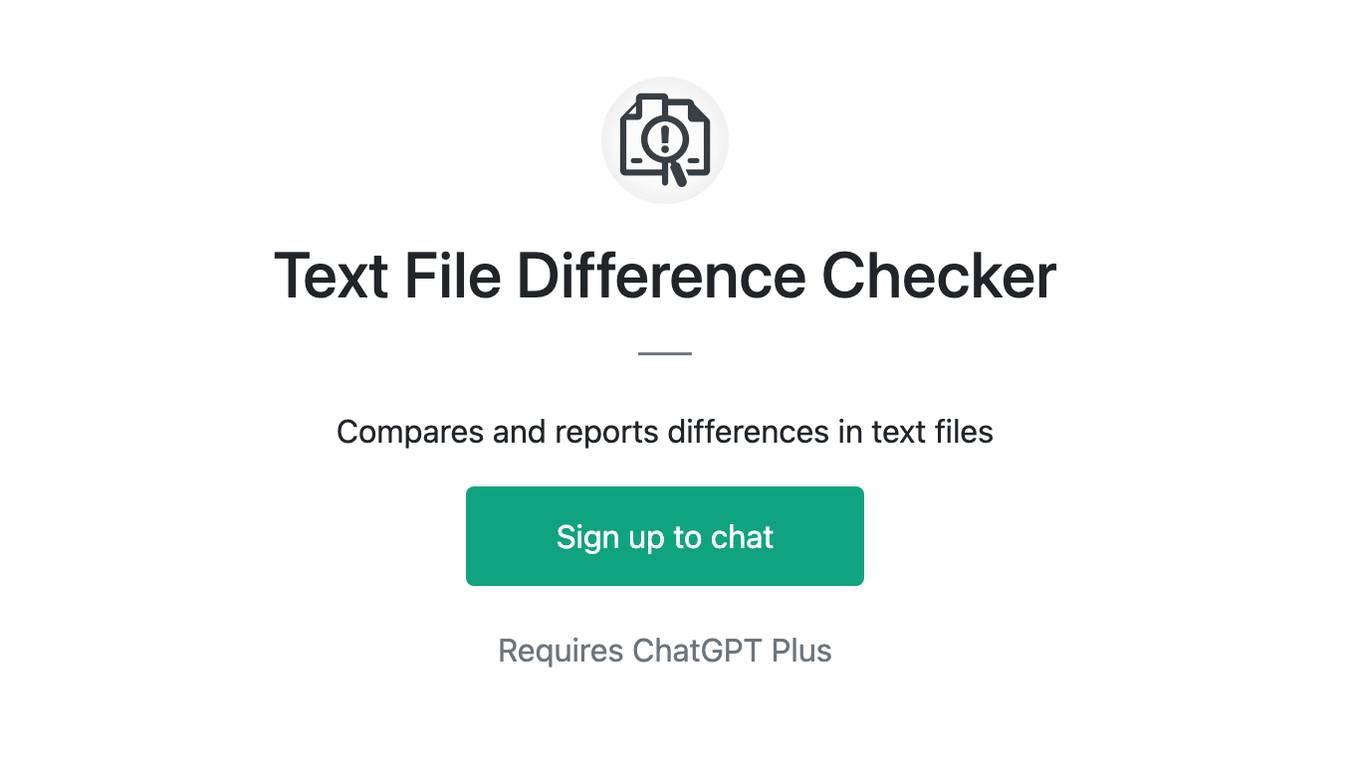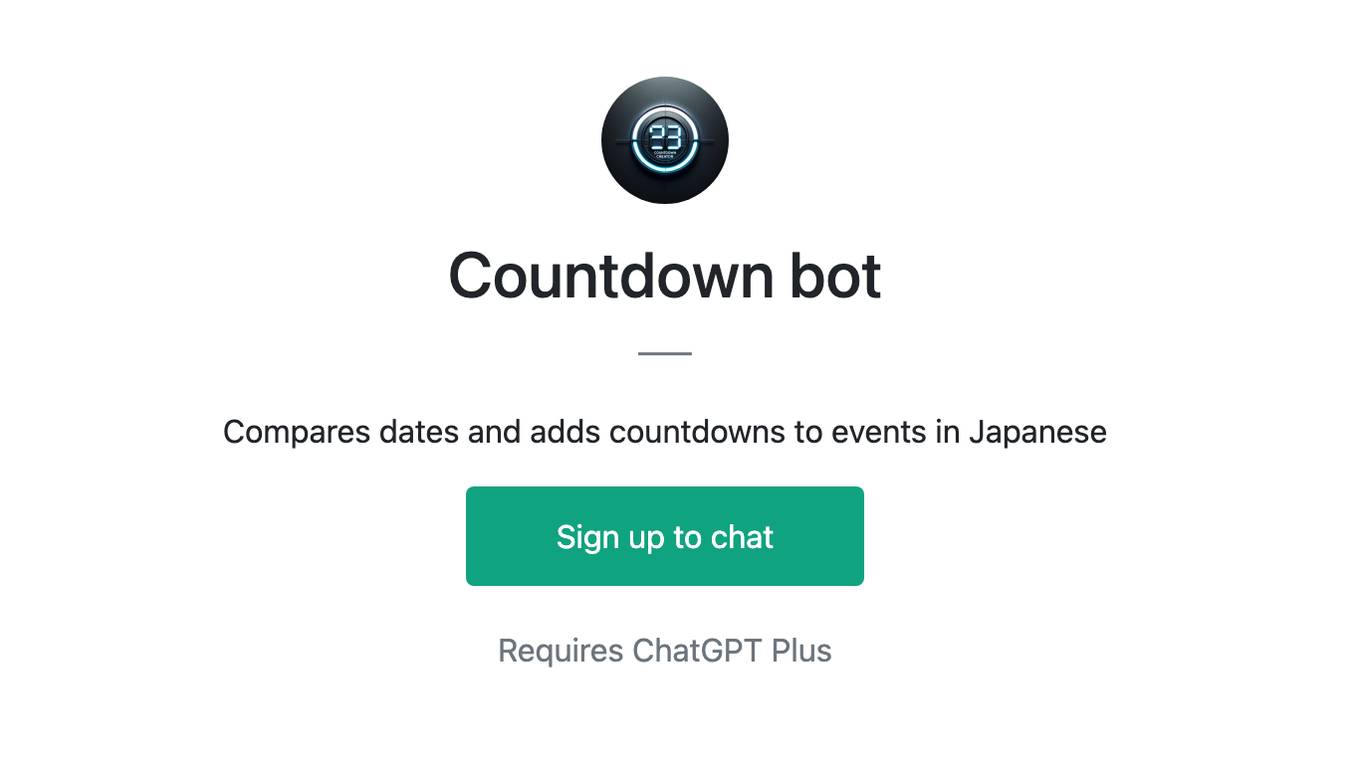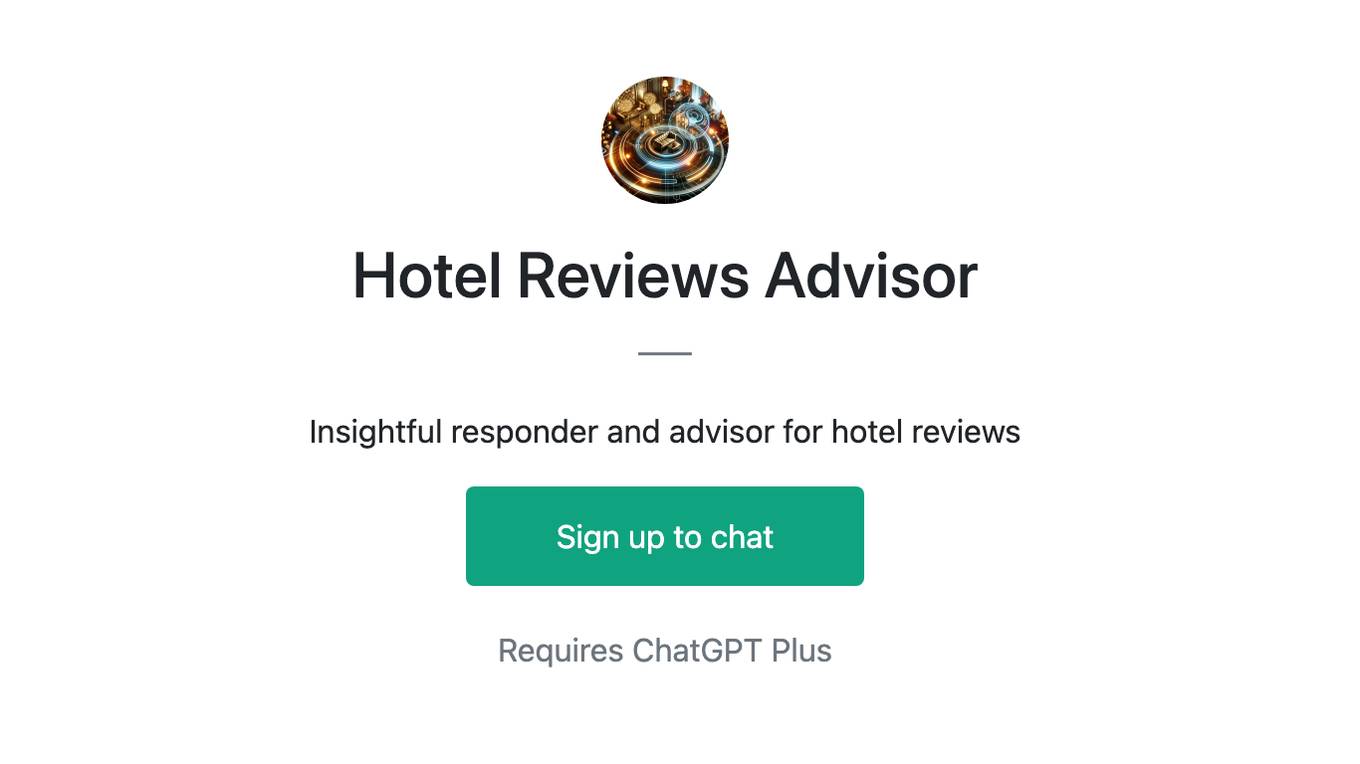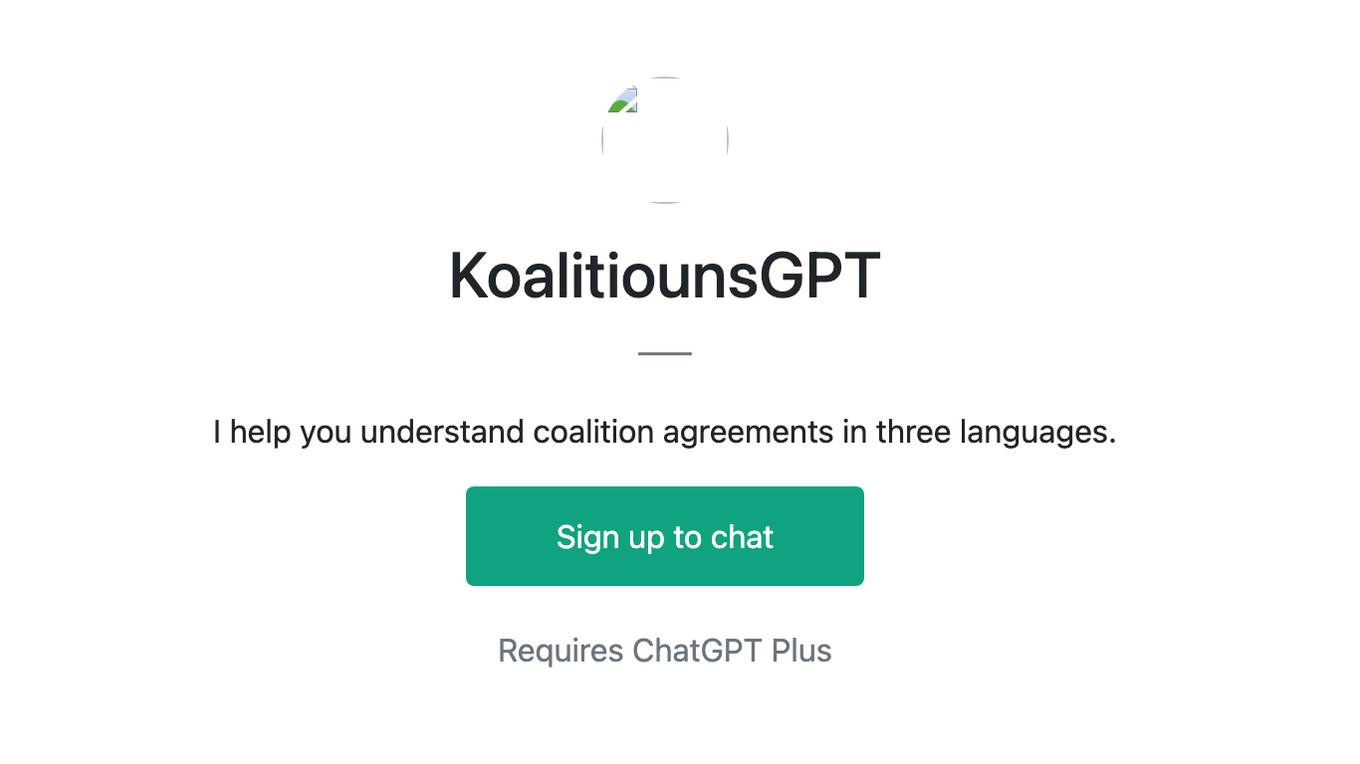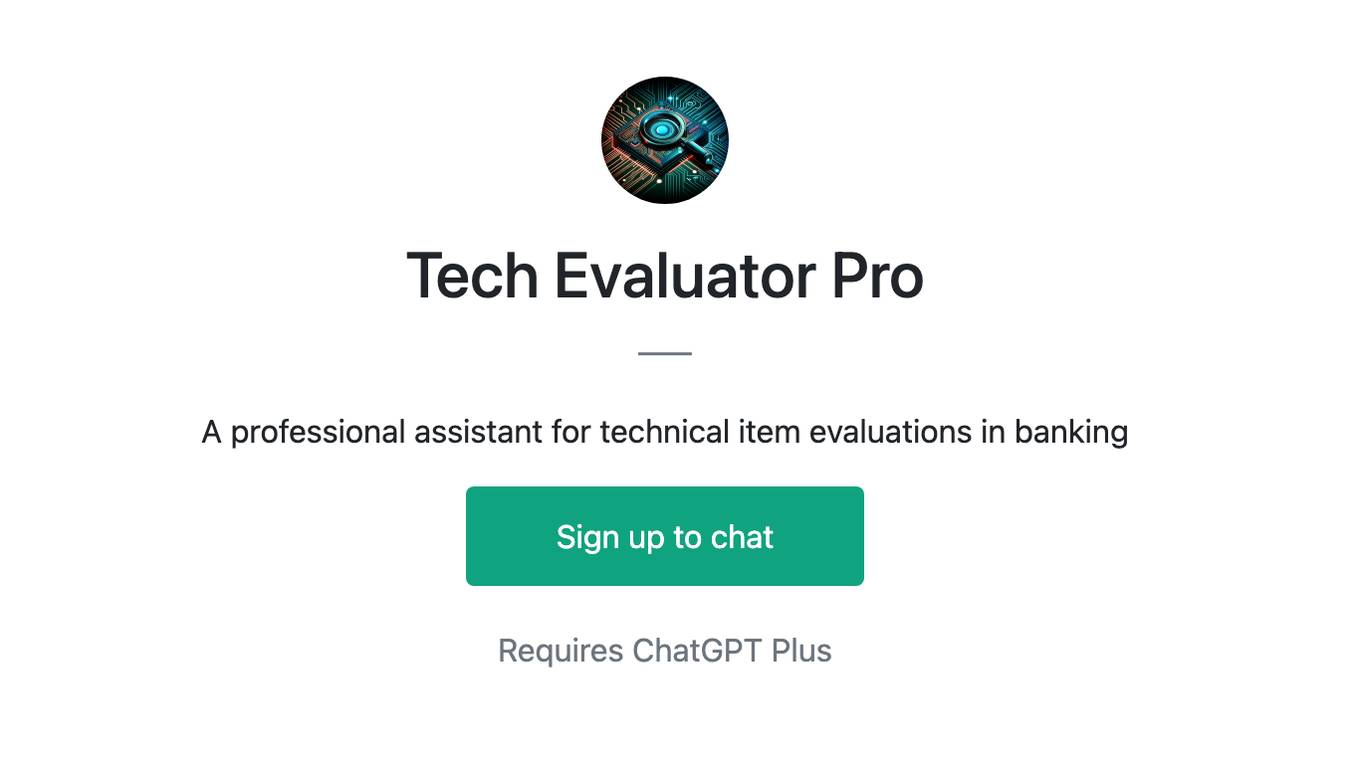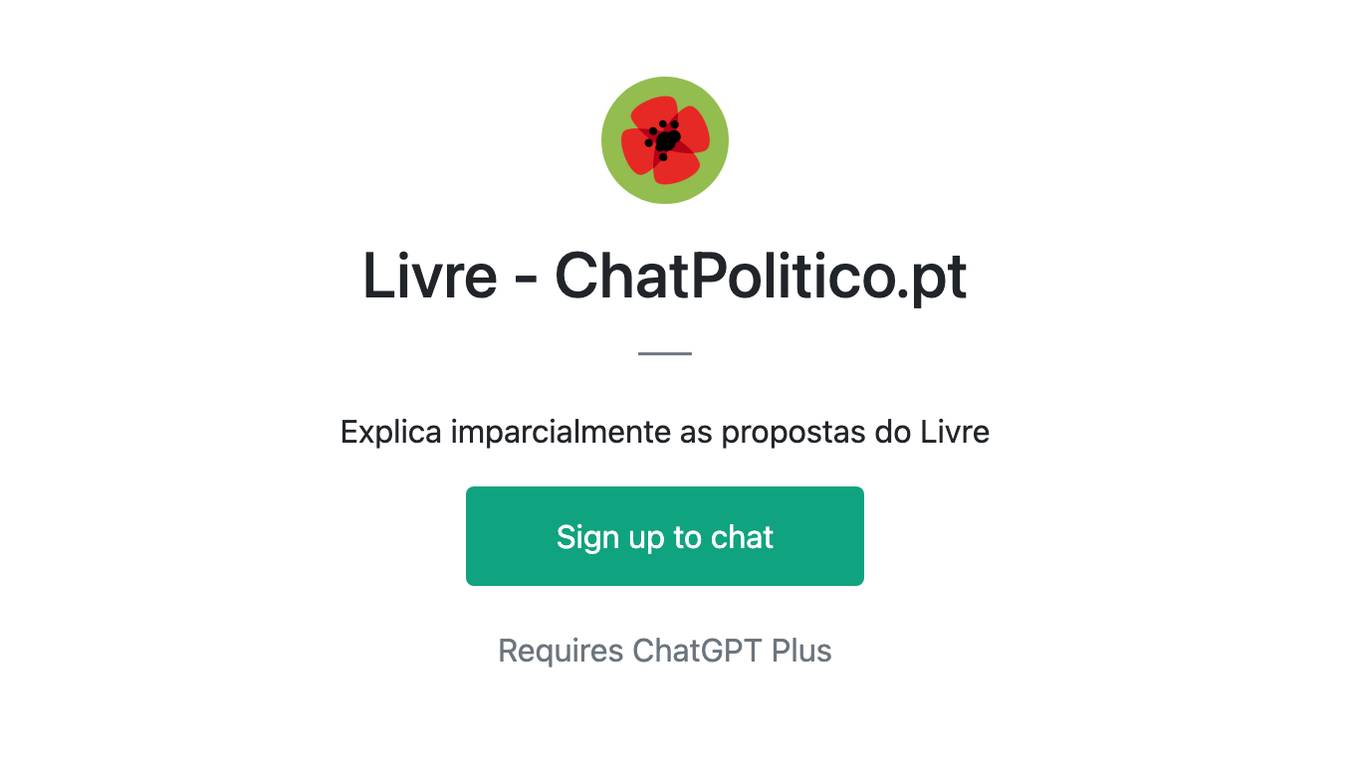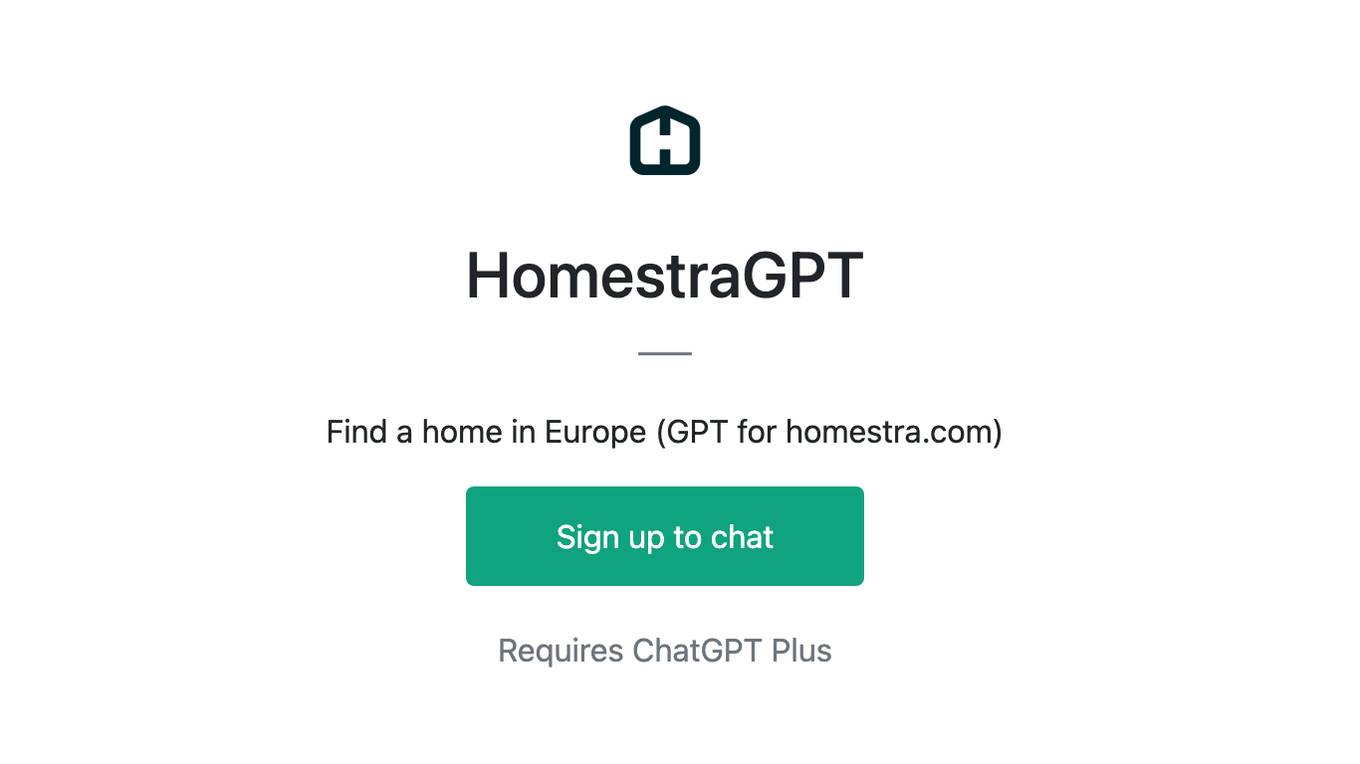Best AI tools for< compare language models >
20 - AI tool Sites
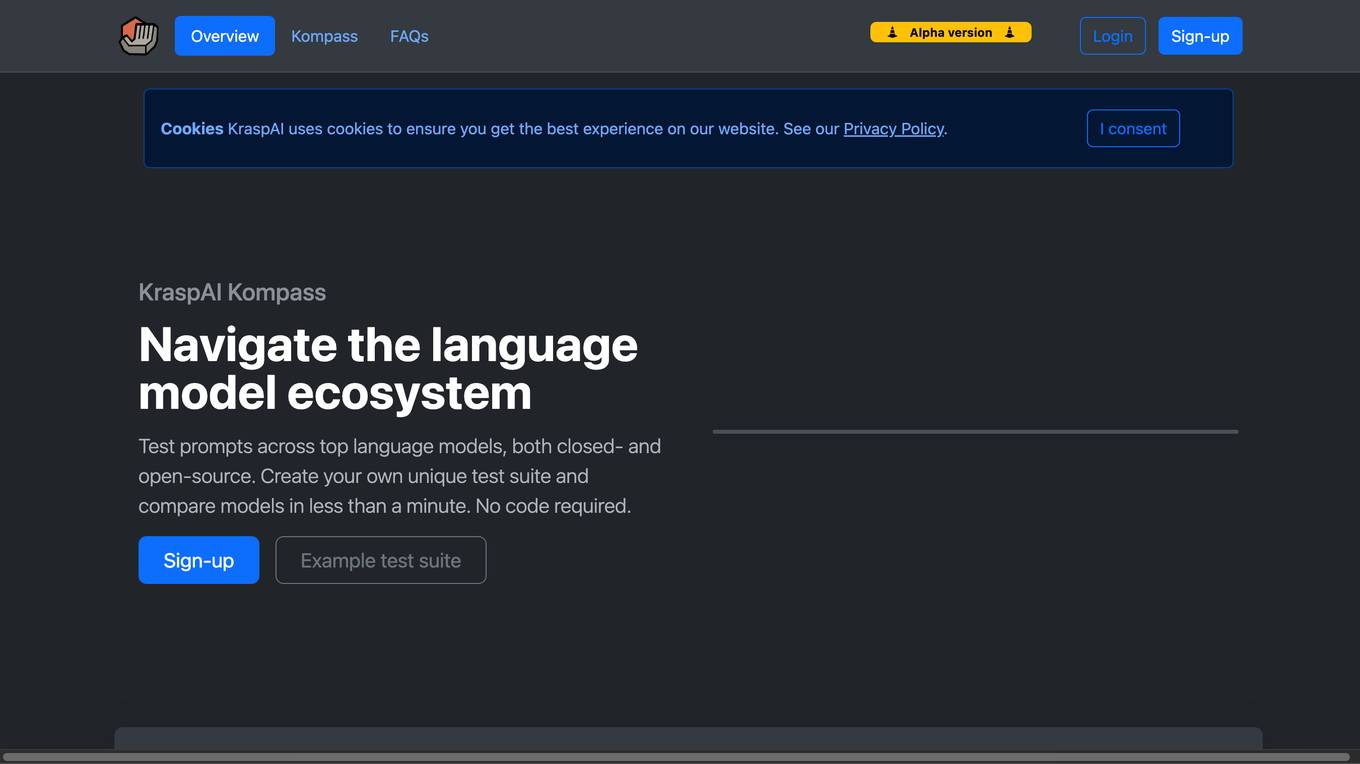
KraspAI Kompass
KraspAI Kompass is a tool that allows users to test prompts across top language models, both closed- and open-source. Users can create their own unique test suite and compare models in less than a minute, with no code required. KraspAI Kompass is a valuable tool for developers and researchers who want to evaluate the performance of different language models.
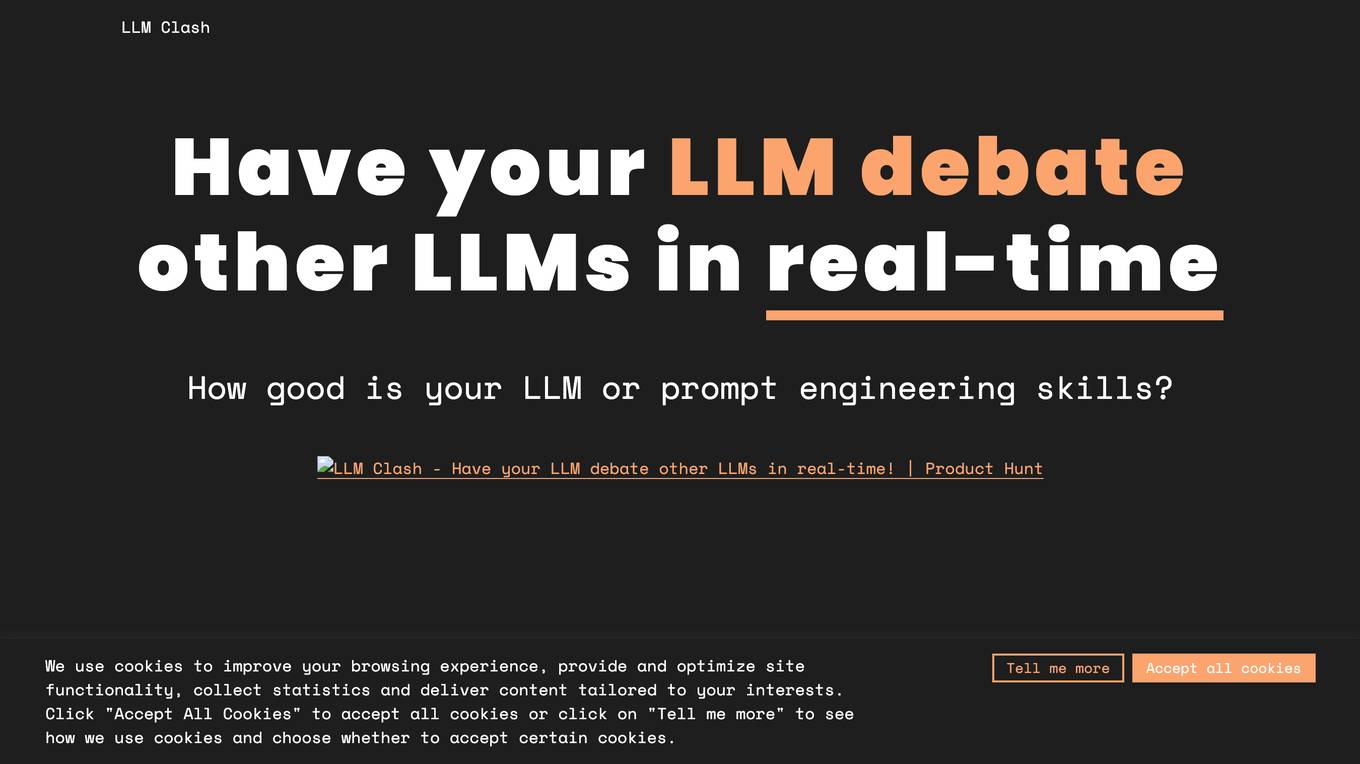
LLM Clash
LLM Clash is a web-based application that allows users to compare the outputs of different large language models (LLMs) on a given task. Users can input a prompt and select which LLMs they want to compare. The application will then display the outputs of the LLMs side-by-side, allowing users to compare their strengths and weaknesses.
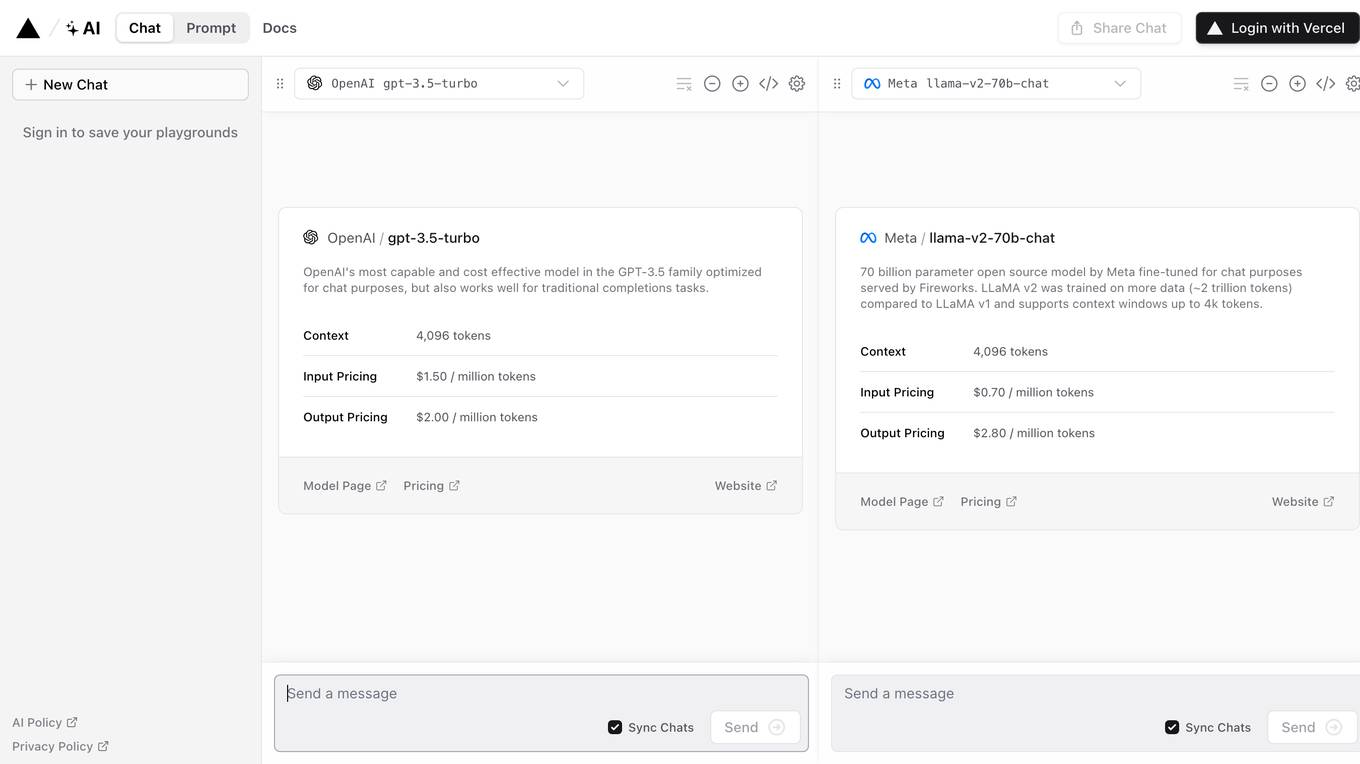
AI Playground
AI Playground is a platform that allows users to compare top AI models side-by-side. It provides documentation, examples, and search functionality for various AI models. Users can access AI SDK Playground to experiment with different models and providers. The platform also offers features like sharing, feedback, and integration with GitHub and Vercel. AI Playground aims to facilitate the exploration and utilization of AI technologies for solving complex problems.

Cameron Jones
Cameron Jones is an AI tool developed by a Cognitive Science PhD student at UCSD. The tool focuses on social intelligence in humans and Large Language Models (LLMs). It analyzes LLM performance on tasks such as the False Belief task, other theory of mind tasks, and the Turing test. The tool also compares humans and LLMs on an Experimental Protocol Inventory for Theory of Mind Evaluation (EPITOME). Cameron Jones aims to explore the capabilities and limitations of LLMs in understanding human behavior and social interactions.
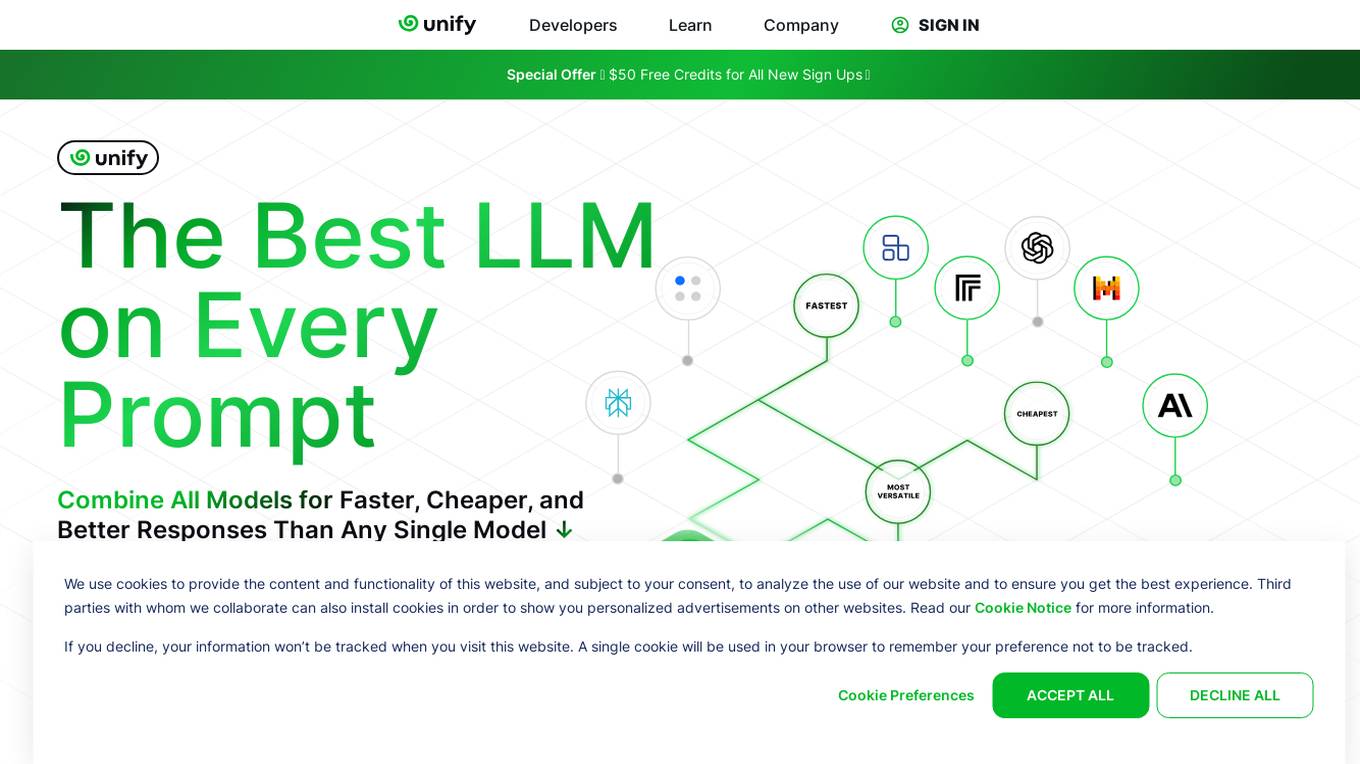
Unify
Unify is an AI tool that offers a unified platform for accessing and comparing various Language Models (LLMs) from different providers. It allows users to combine models for faster, cheaper, and better responses, optimizing for quality, speed, and cost-efficiency. Unify simplifies the complex task of selecting the best LLM by providing transparent benchmarks, personalized routing, and performance optimization tools.
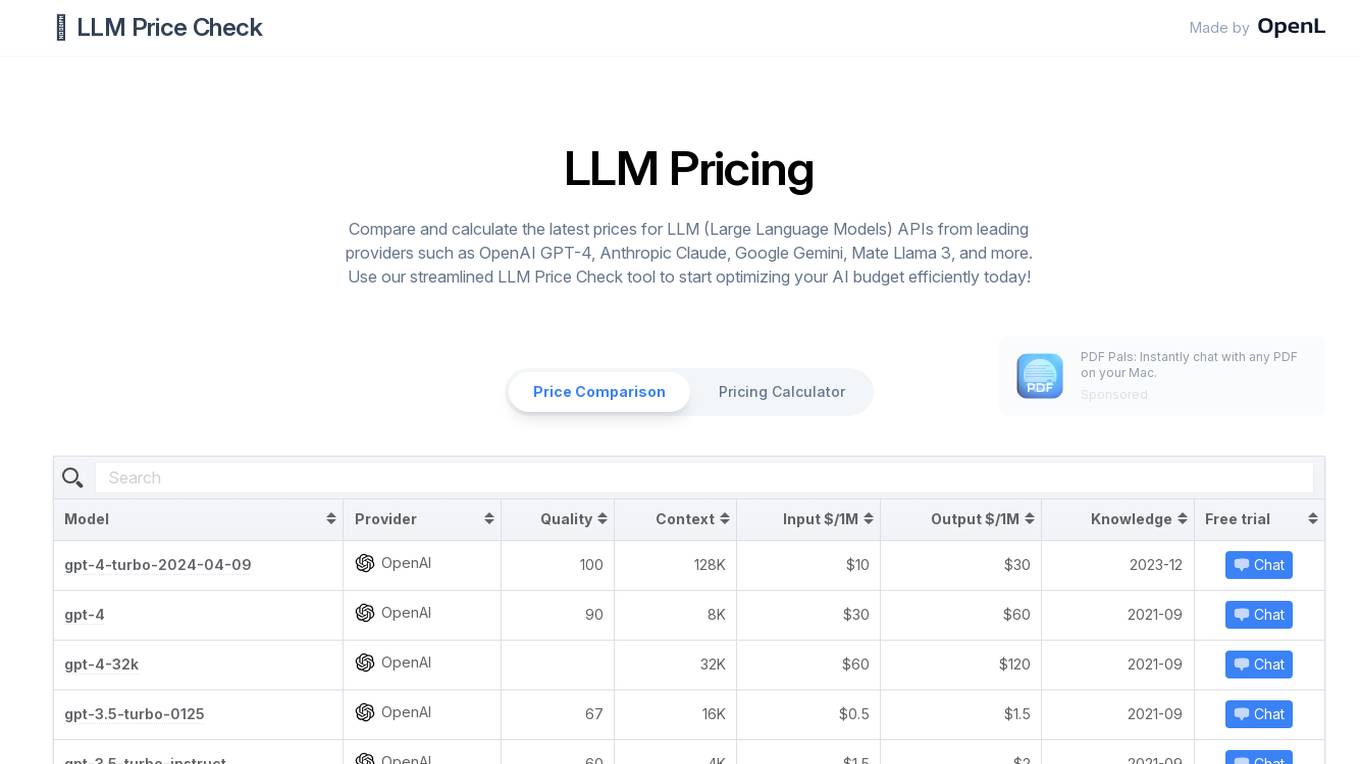
LLM Price Check
LLM Price Check is an AI tool designed to compare and calculate the latest prices for Large Language Models (LLM) APIs from leading providers such as OpenAI, Anthropic, Google, and more. Users can use the streamlined tool to optimize their AI budget efficiently by comparing pricing, sorting by various parameters, and searching for specific models. The tool provides a comprehensive overview of pricing information to help users make informed decisions when selecting an LLM API provider.
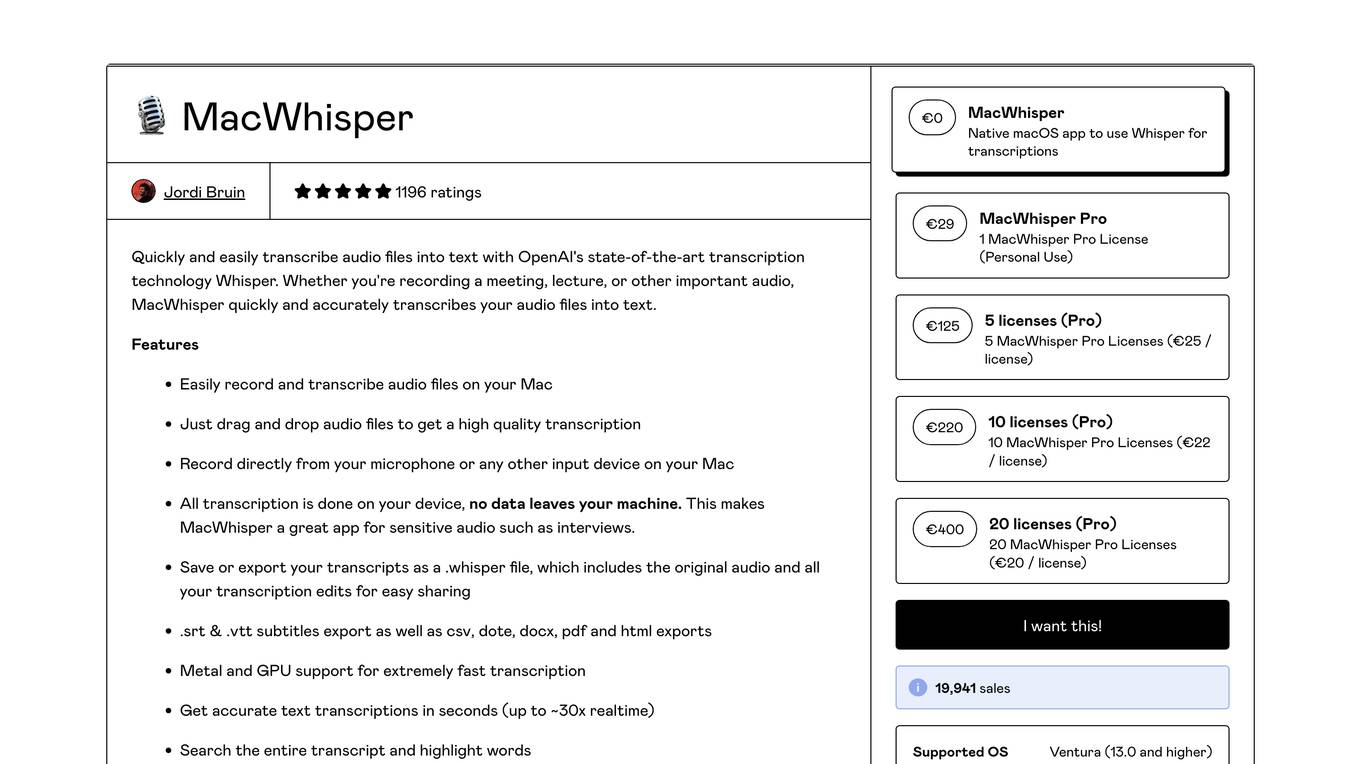
MacWhisper
MacWhisper is a native macOS application that utilizes OpenAI's Whisper technology for transcribing audio files into text. It offers a user-friendly interface for recording, transcribing, and editing audio, making it suitable for various use cases such as transcribing meetings, lectures, interviews, and podcasts. The application is designed to protect user privacy by performing all transcriptions locally on the device, ensuring that no data leaves the user's machine.
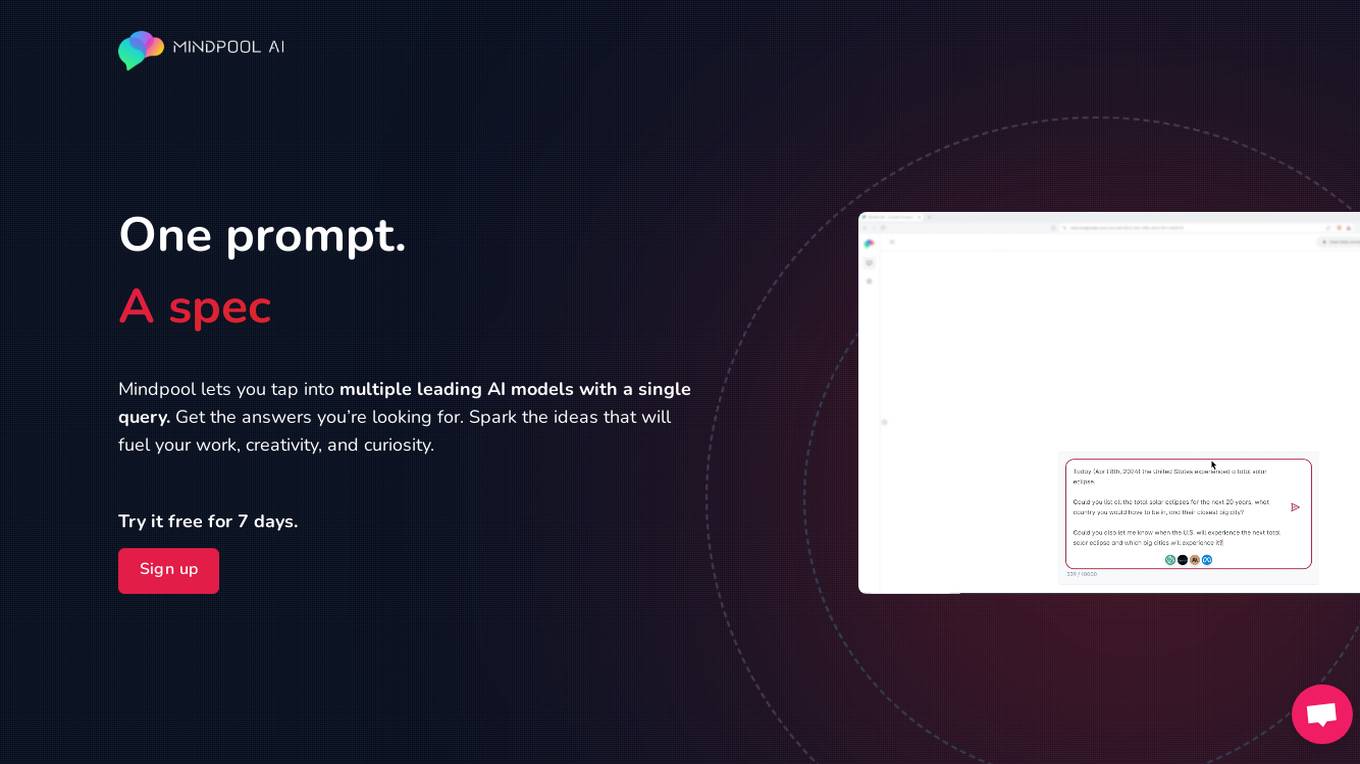
MindpoolAI
MindpoolAI is a tool that allows users to access multiple leading AI models with a single query. This means that users can get the answers they are looking for, spark ideas, and fuel their work, creativity, and curiosity. MindpoolAI is easy to use and does not require any technical expertise. Users simply need to enter their prompt and select the AI models they want to compare. MindpoolAI will then send the query to the selected models and present the results in an easy-to-understand format.
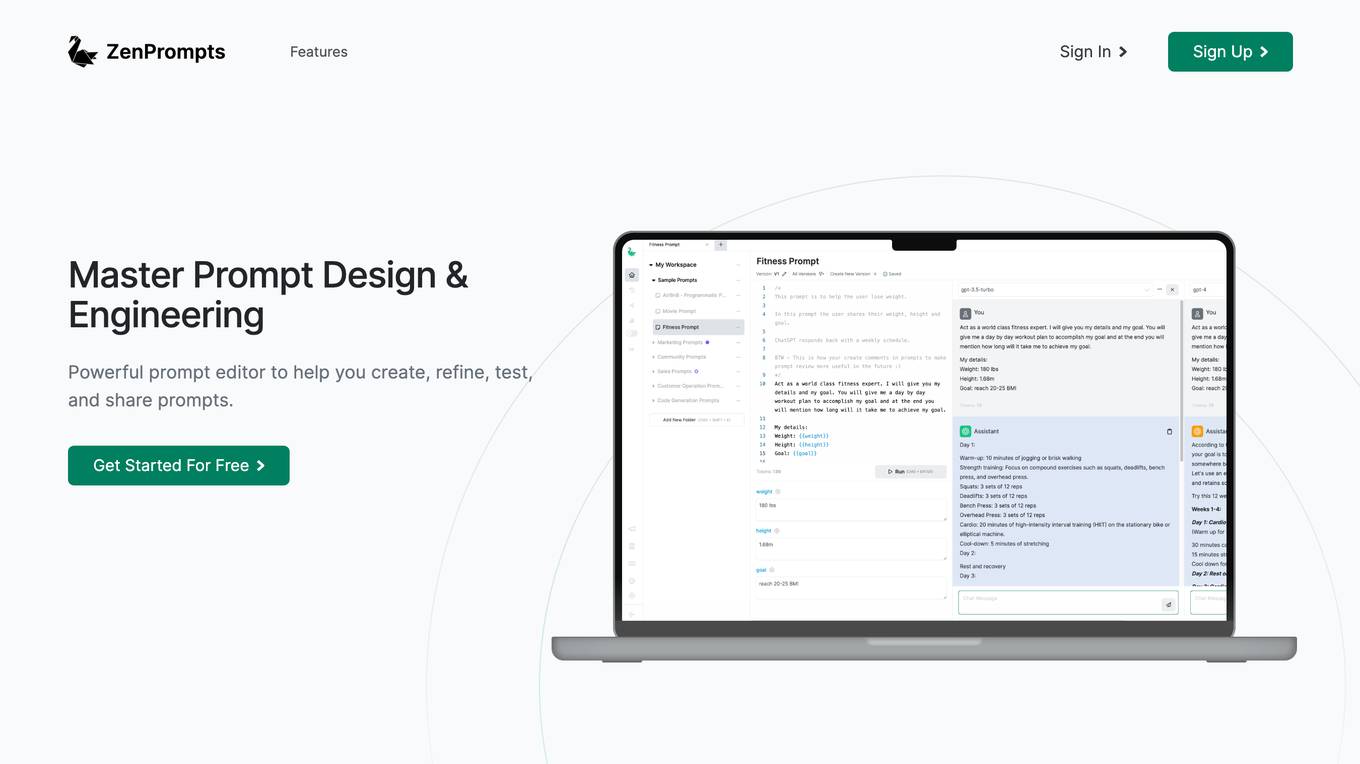
ZenPrompts
ZenPrompts is a powerful prompt editor that helps you create, refine, test, and share prompts for AI models. It offers a variety of features to make prompt engineering easier and more efficient, including the ability to compare prompts across multiple models, showcase your prompt portfolio, experiment with prompts without losing work, share prompts with others, and use dynamic variables and comments to streamline your workflow.
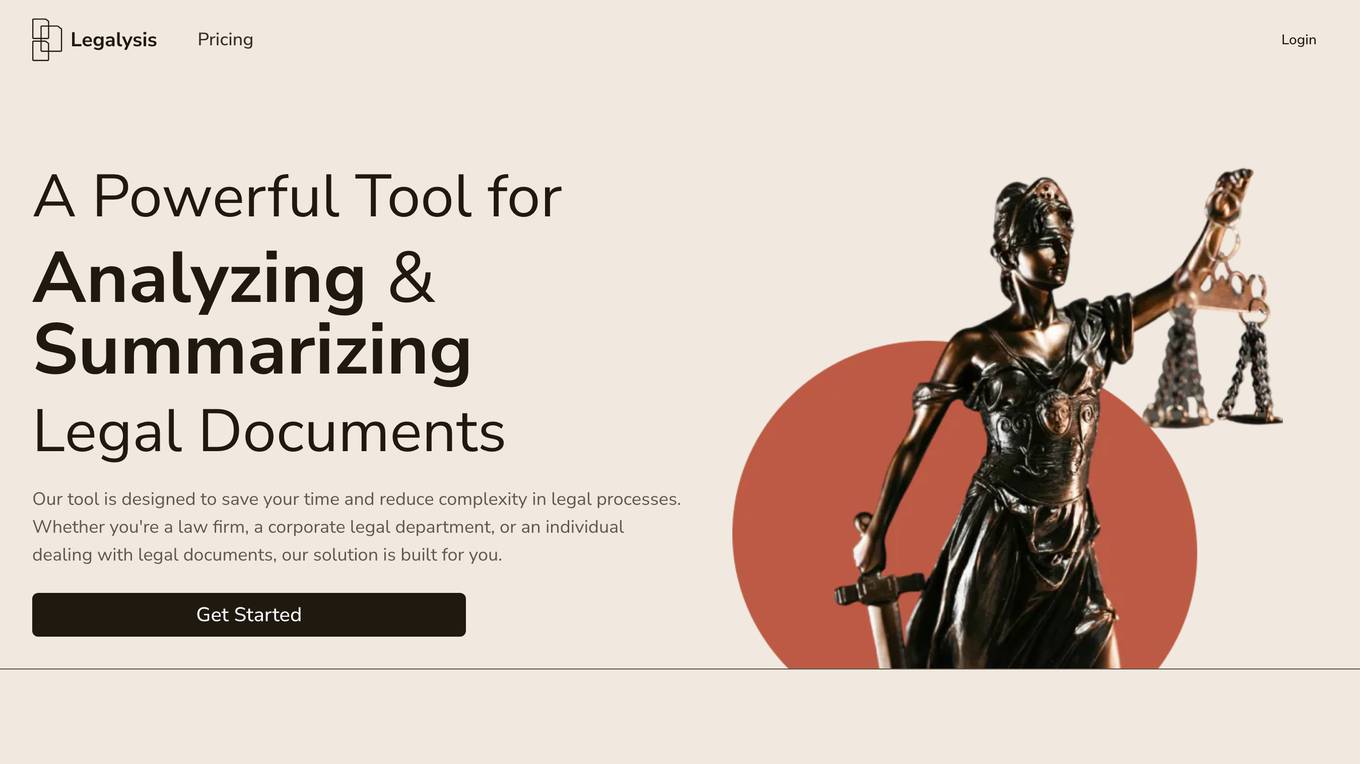
Legalysis
Legalysis is a powerful tool for analyzing and summarizing legal documents. It is designed to save time and reduce complexity in legal processes. The tool uses advanced AI technology to examine contracts and other legal documents in depth, detecting potential risks and issues with impressive accuracy. It also converts dense, lengthy legal documents into brief, one-page summaries, making them easier to understand. Legalysis is a valuable tool for law firms, corporate legal departments, and individuals dealing with legal documents.
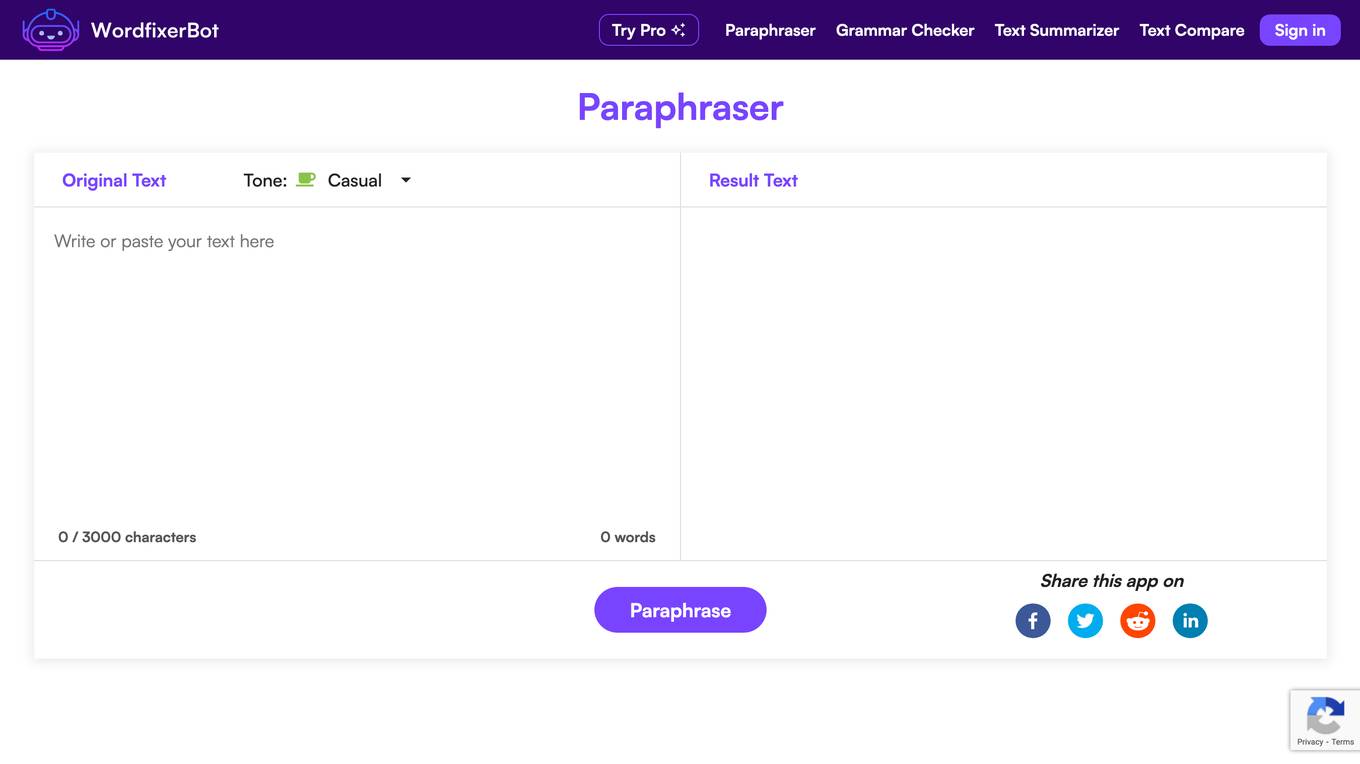
WordfixerBot's Paraphrasing Tool
WordfixerBot's Paraphrasing Tool is an AI-powered tool that helps users quickly and accurately rephrase any text. It uses advanced AI models to generate human-like text while maintaining the original meaning. The tool offers multiple tone options, allowing users to customize the paraphrased text to suit their writing style and audience. It is widely used by individuals and organizations, including writers, marketing professionals, bloggers, students, copywriters, journalists, editors, business professionals, content creators, and researchers.
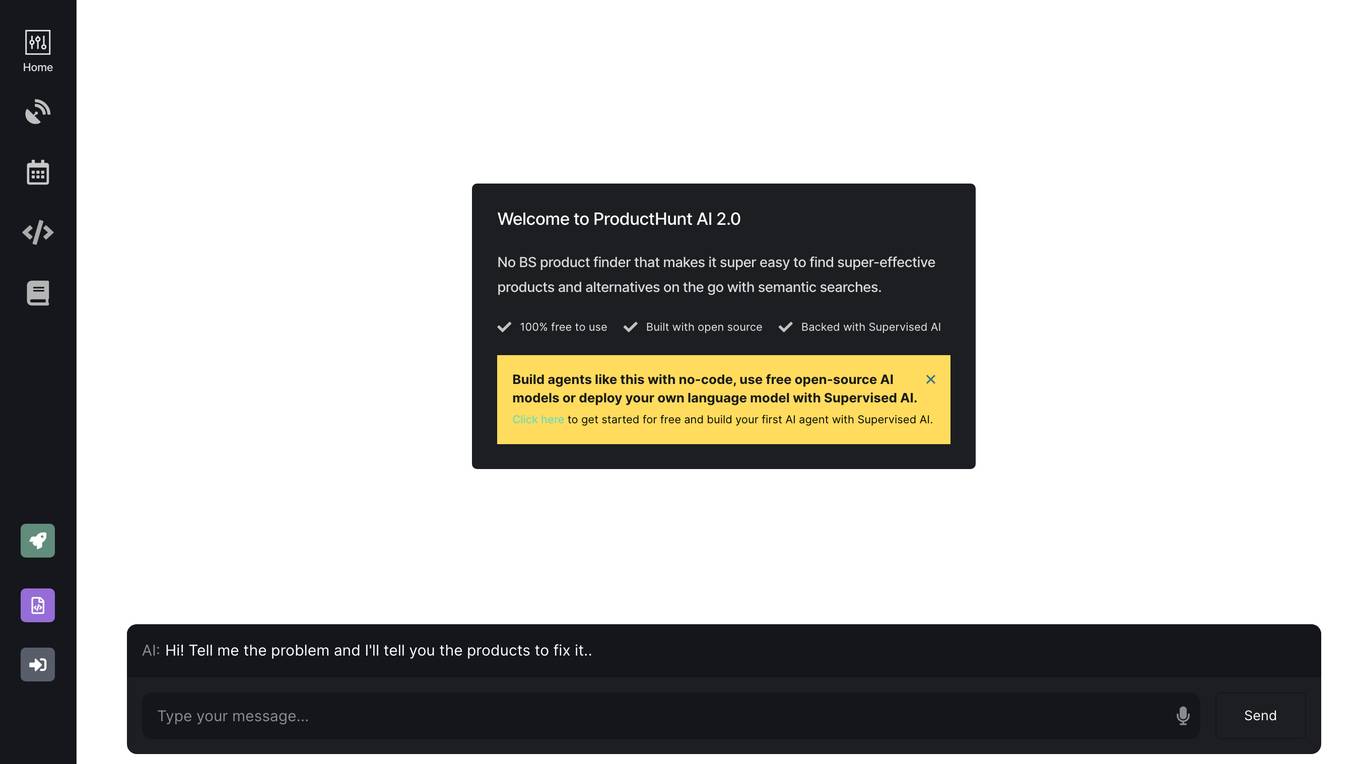
ProductHunt AI 2.0
ProductHunt AI 2.0 is a no-BS product finder that makes it super easy to find super-effective products and alternatives on the go with semantic searches. It is 100% free to use and backed by Supervised AI. With ProductHunt AI 2.0, you can build agents like this with no-code, use free open-source AI models, or deploy your own language model.
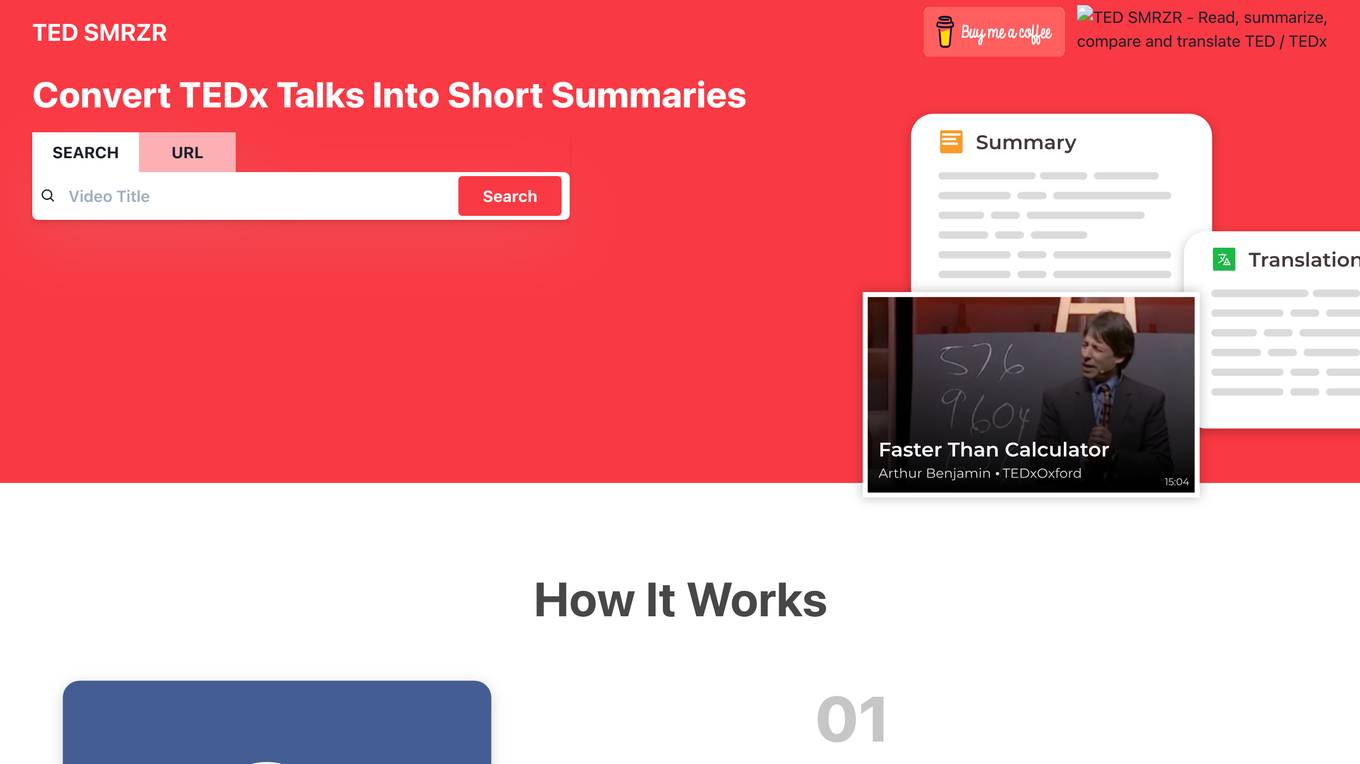
TED SMRZR
TED SMRZR is a web application that converts TEDx Talks into short summaries. It uses AI models to fetch the transcript from the TEDx video, punctuate the transcribed data, and then summarize it. The summarized talks are then translated into different languages and compared to similar TEDx Talks for deep insights. TED SMRZR provides nicely punctuated TED Talks to read and short summaries for all the available TED Talks. Users can also select multiple Talks and compare their summaries.
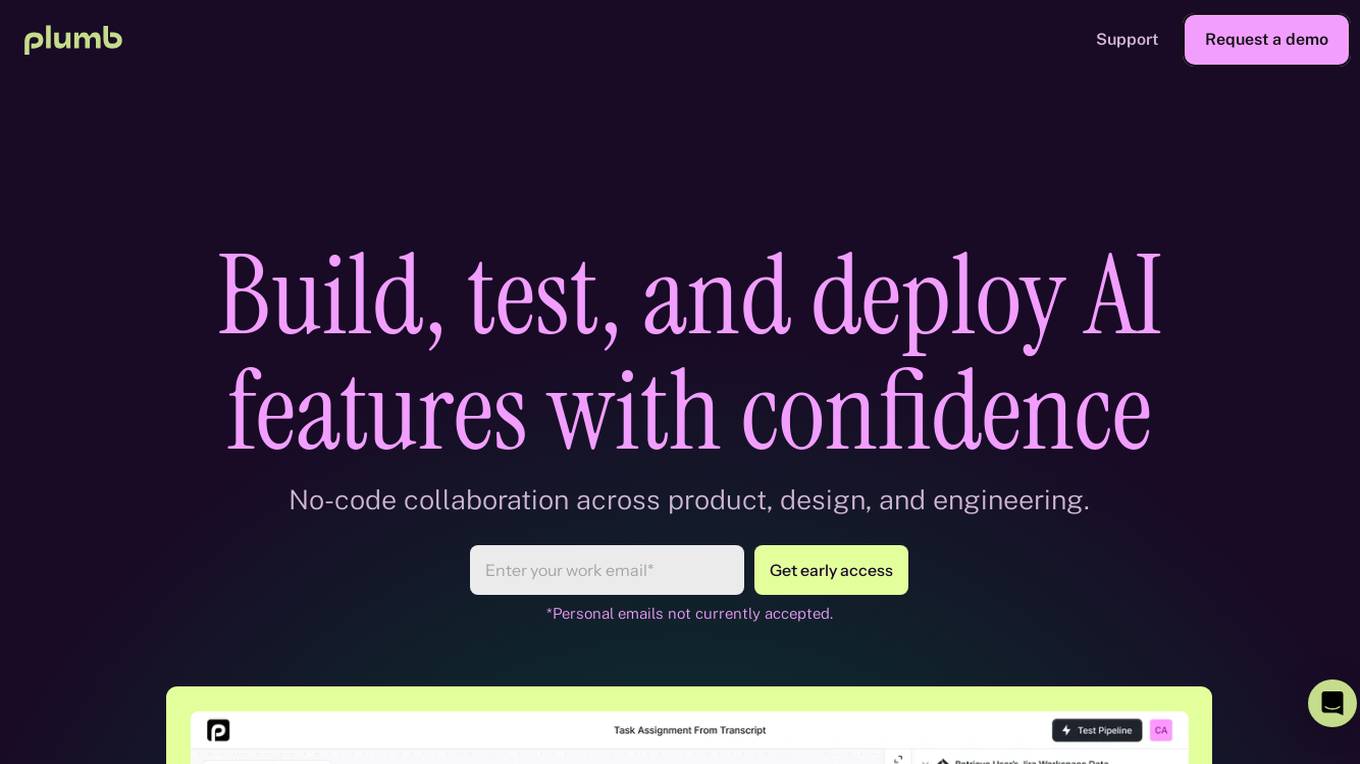
Plumb
Plumb is a no-code, node-based builder that empowers product, design, and engineering teams to create AI features together. It enables users to build, test, and deploy AI features with confidence, fostering collaboration across different disciplines. With Plumb, teams can ship prototypes directly to production, ensuring that the best prompts from the playground are the exact versions that go to production. It goes beyond automation, allowing users to build complex multi-tenant pipelines, transform data, and leverage validated JSON schema to create reliable, high-quality AI features that deliver real value to users. Plumb also makes it easy to compare prompt and model performance, enabling users to spot degradations, debug them, and ship fixes quickly. It is designed for SaaS teams, helping ambitious product teams collaborate to deliver state-of-the-art AI-powered experiences to their users at scale.
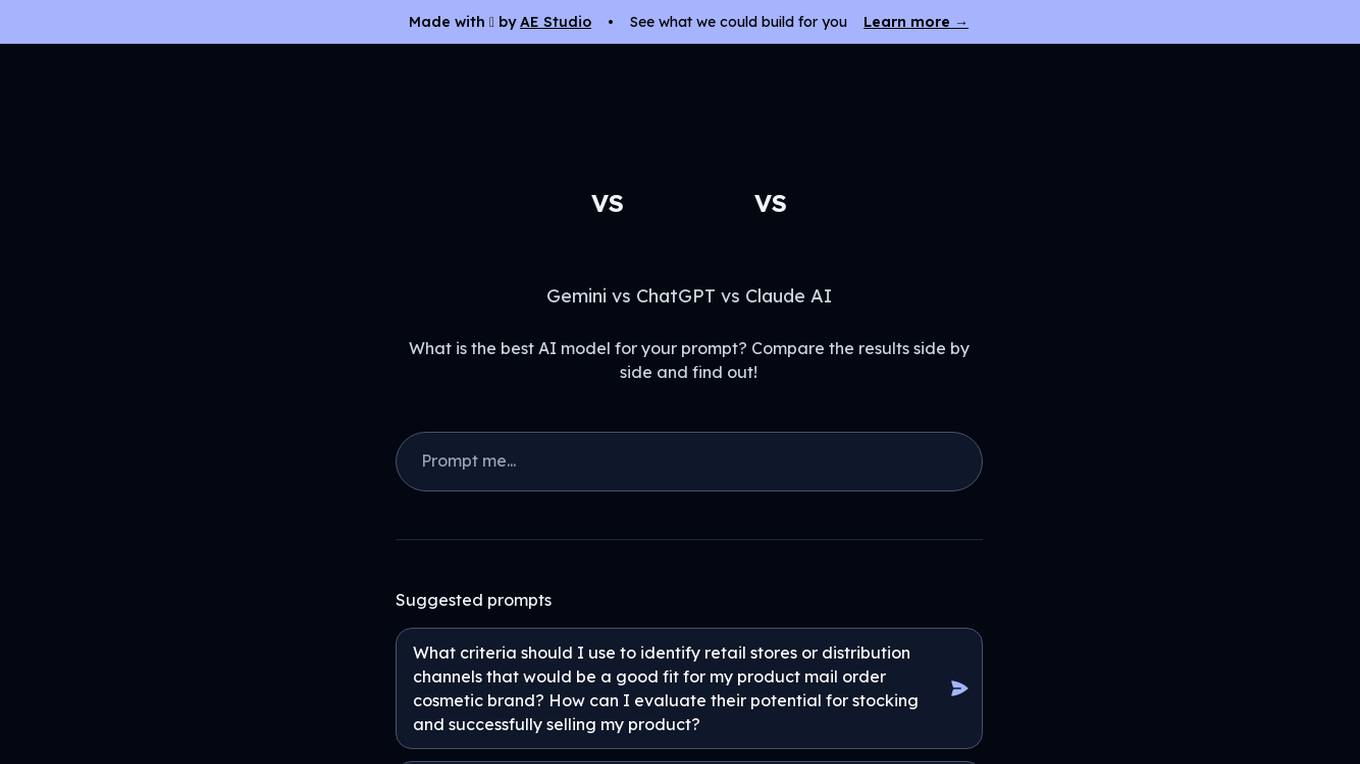
Gemini vs ChatGPT
Gemini is a multi-modal AI model, developed by Google. It is designed to understand and generate human language, and can be used for a variety of tasks, including question answering, translation, and dialogue generation. ChatGPT is a large language model, developed by OpenAI. It is also designed to understand and generate human language, and can be used for a variety of tasks, including question answering, translation, and dialogue generation.
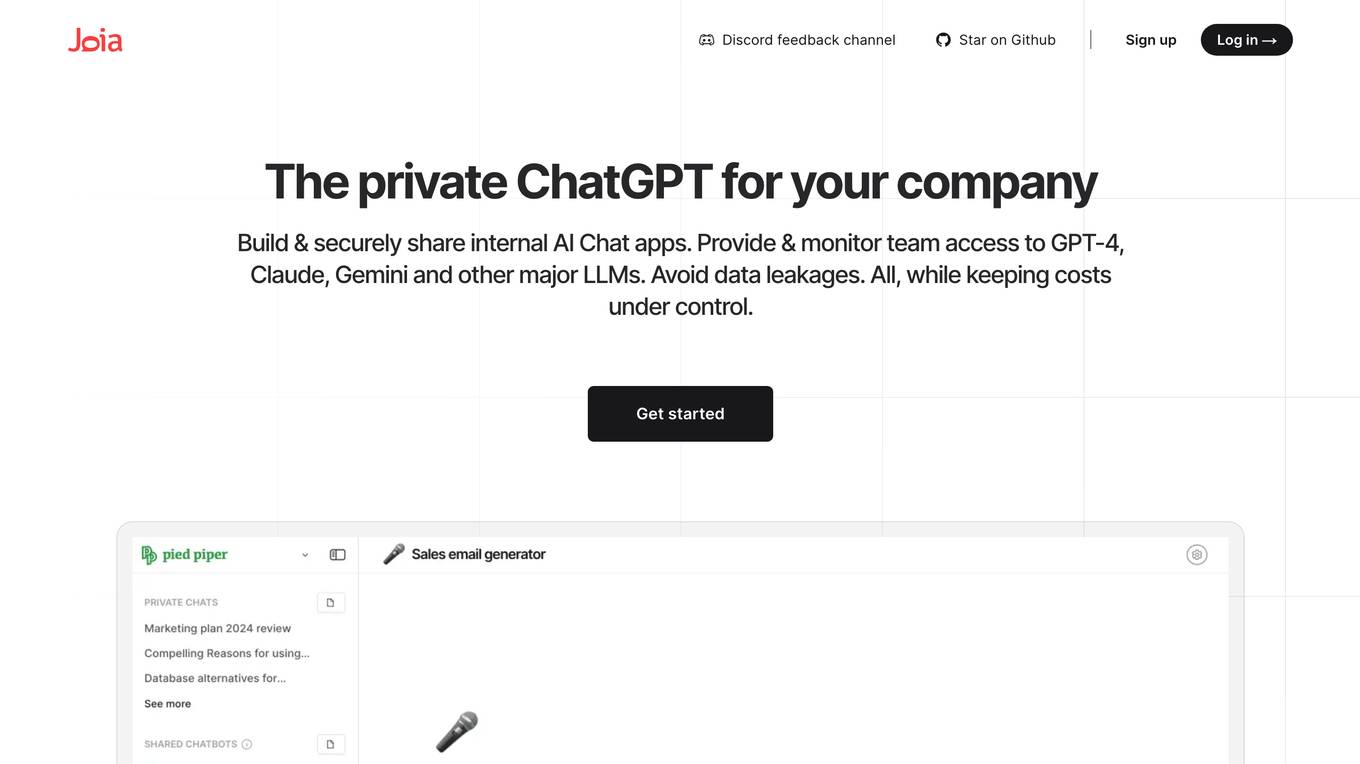
Joia
Joia is a private ChatGPT alternative built for collaboration within teams. It provides secure access to various large language models (LLMs) like GPT-4, Claude, and Gemini, allowing teams to build and share internal AI chat applications. Joia prioritizes data security, cost control, and offers a more affordable option compared to ChatGPT for Teams, with savings of up to 70%. It enables users to experiment with different LLMs and create personalized chatbots for repetitive tasks, enhancing team collaboration and efficiency.
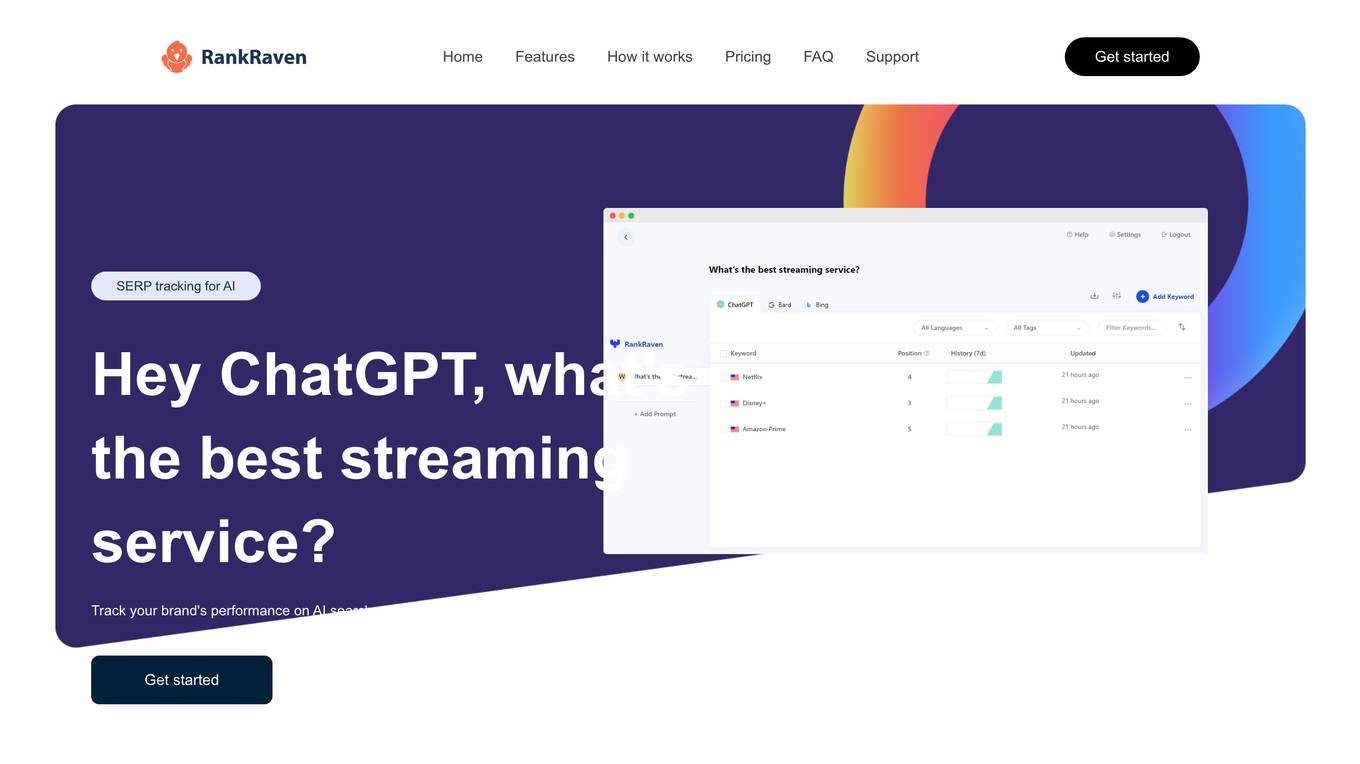
RankRaven
RankRaven is an advanced AI rank tracker that helps users monitor their brand's performance on AI search engines. It offers fast and accurate AI SEO tracking using multiple AI models such as OpenAI ChatGPT, Google Bard, and Microsoft Bing. Users can track their brand across different AI search models, receive daily rank updates, compare performance across languages and countries, and analyze trends over time. The tool automates the process of running prompts, checking keyword appearances in model answers, and notifying users of any rank changes via email.

AIModels.fyi
AIModels.fyi is a website that helps users find the best AI model for their startup. The website provides a weekly rundown of the latest AI models and research, and also allows users to search for models by category or keyword. AIModels.fyi is a valuable resource for anyone looking to use AI to solve a problem.
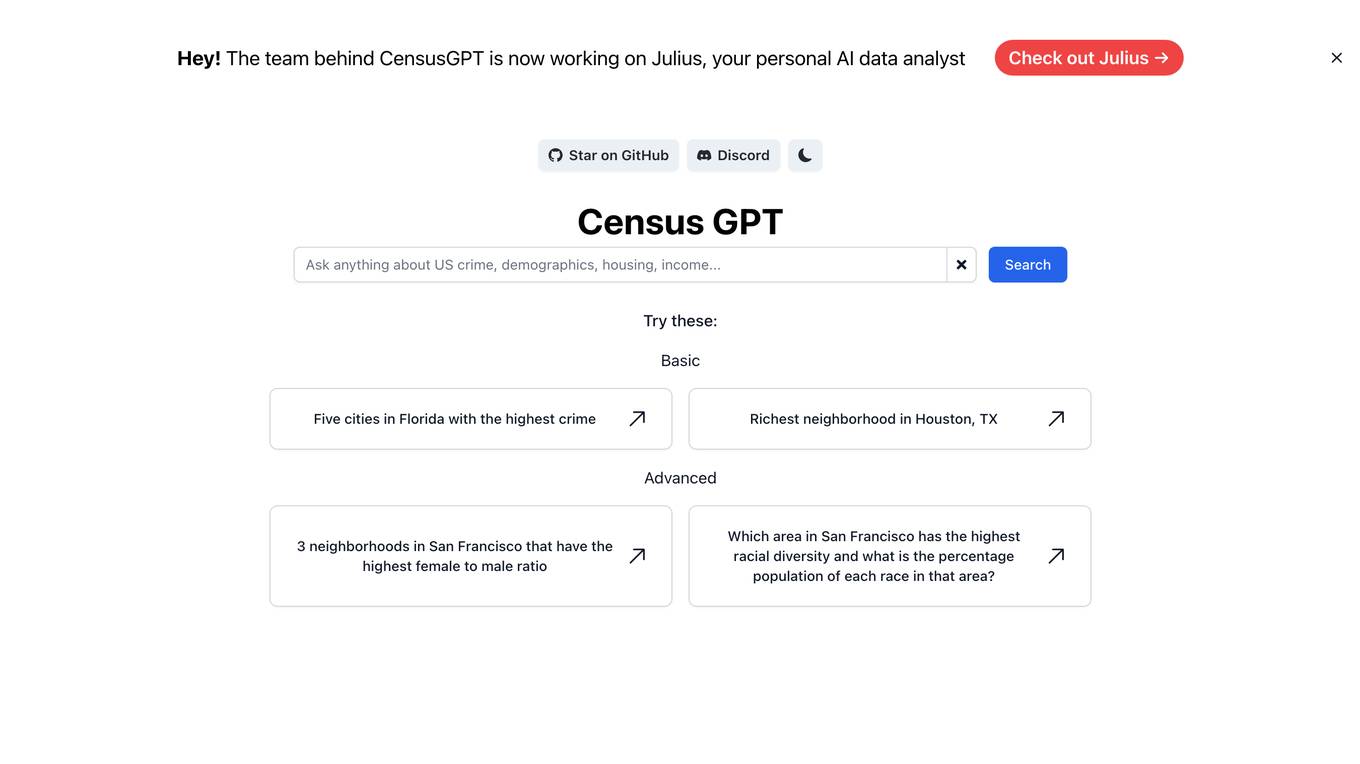
Census GPT
Census GPT is an AI tool that provides data analysis services based on census information in the USA. The tool offers insights on crime rates, demographics, income levels, education levels, and population statistics. Users can ask specific questions related to these categories and receive detailed answers generated by the AI model.
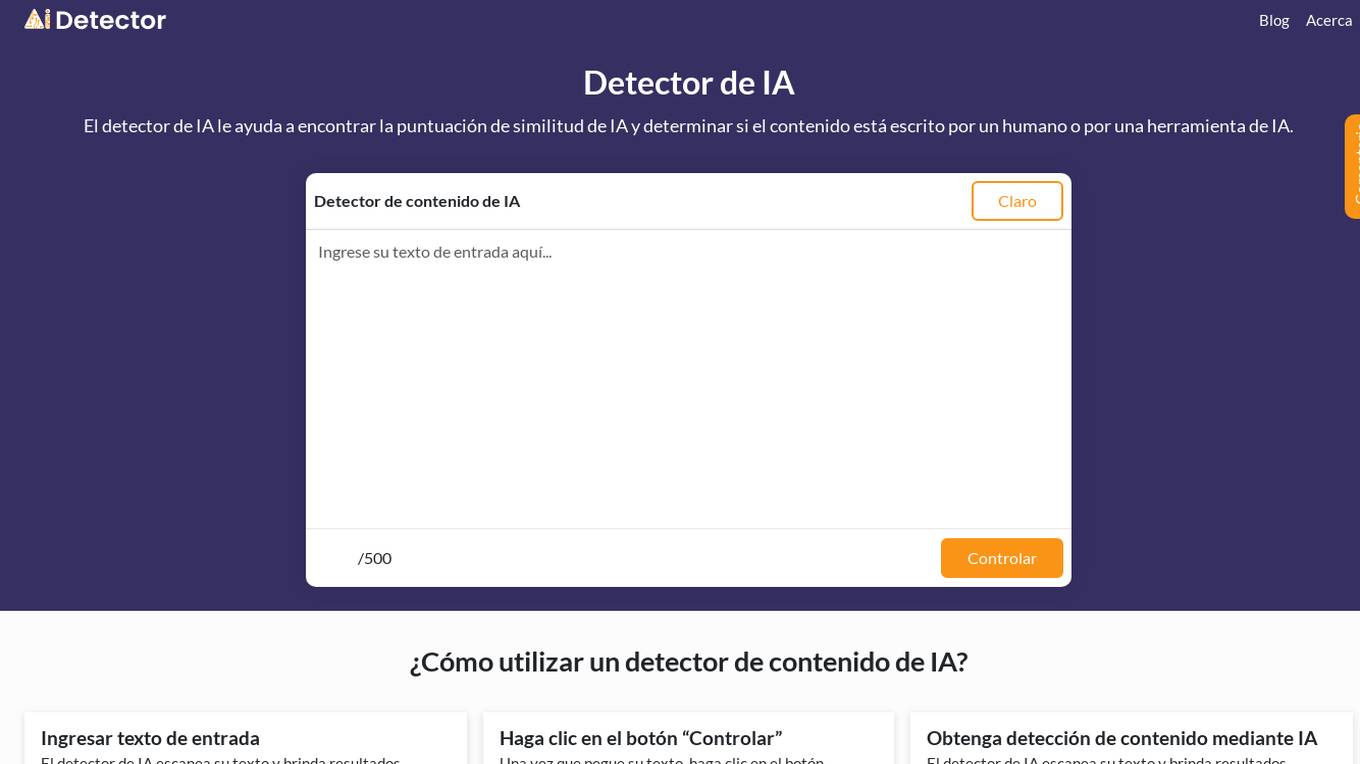
AI Content Detector
The AI Content Detector is an online tool that helps users determine the similarity score of AI-generated content and whether it was written by a human or an AI tool. It utilizes advanced algorithms and natural language processing to analyze text, providing a percentage-based authenticity result. Users can input text for analysis and receive accurate results regarding the likelihood of AI authorship. The tool compares syntax, vocabulary, and semantics with AI and human models, offering high accuracy in identifying paraphrased content.
20 - Open Source AI Tools
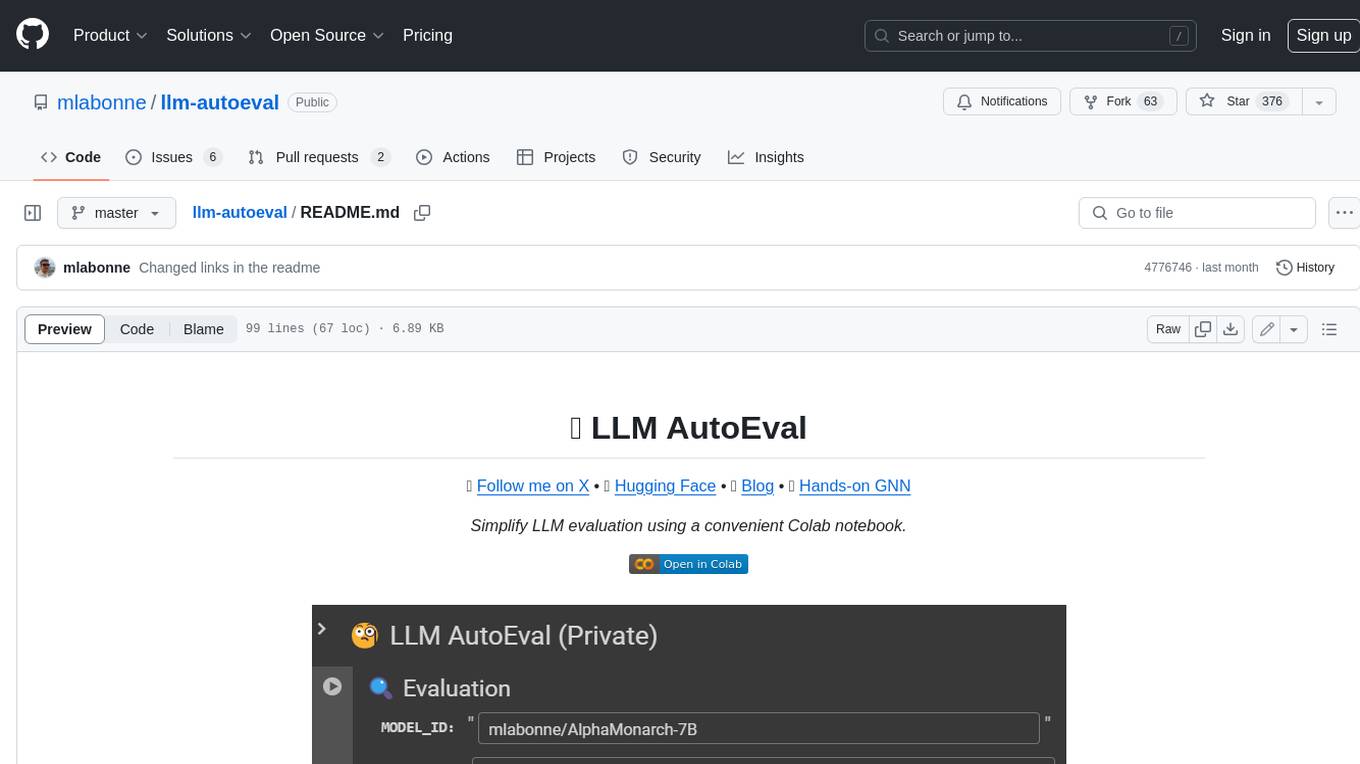
llm-autoeval
LLM AutoEval is a tool that simplifies the process of evaluating Large Language Models (LLMs) using a convenient Colab notebook. It automates the setup and execution of evaluations using RunPod, allowing users to customize evaluation parameters and generate summaries that can be uploaded to GitHub Gist for easy sharing and reference. LLM AutoEval supports various benchmark suites, including Nous, Lighteval, and Open LLM, enabling users to compare their results with existing models and leaderboards.
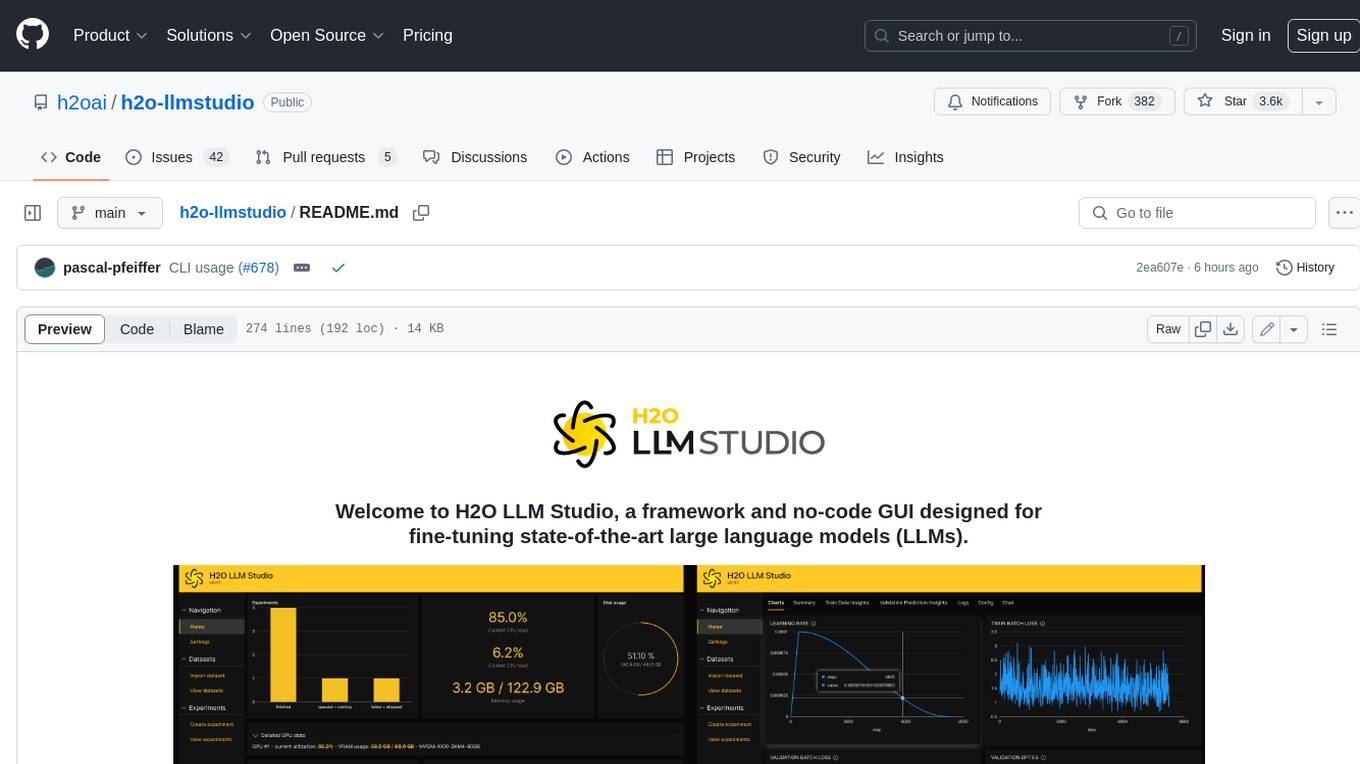
h2o-llmstudio
H2O LLM Studio is a framework and no-code GUI designed for fine-tuning state-of-the-art large language models (LLMs). With H2O LLM Studio, you can easily and effectively fine-tune LLMs without the need for any coding experience. The GUI is specially designed for large language models, and you can finetune any LLM using a large variety of hyperparameters. You can also use recent finetuning techniques such as Low-Rank Adaptation (LoRA) and 8-bit model training with a low memory footprint. Additionally, you can use Reinforcement Learning (RL) to finetune your model (experimental), use advanced evaluation metrics to judge generated answers by the model, track and compare your model performance visually, and easily export your model to the Hugging Face Hub and share it with the community.
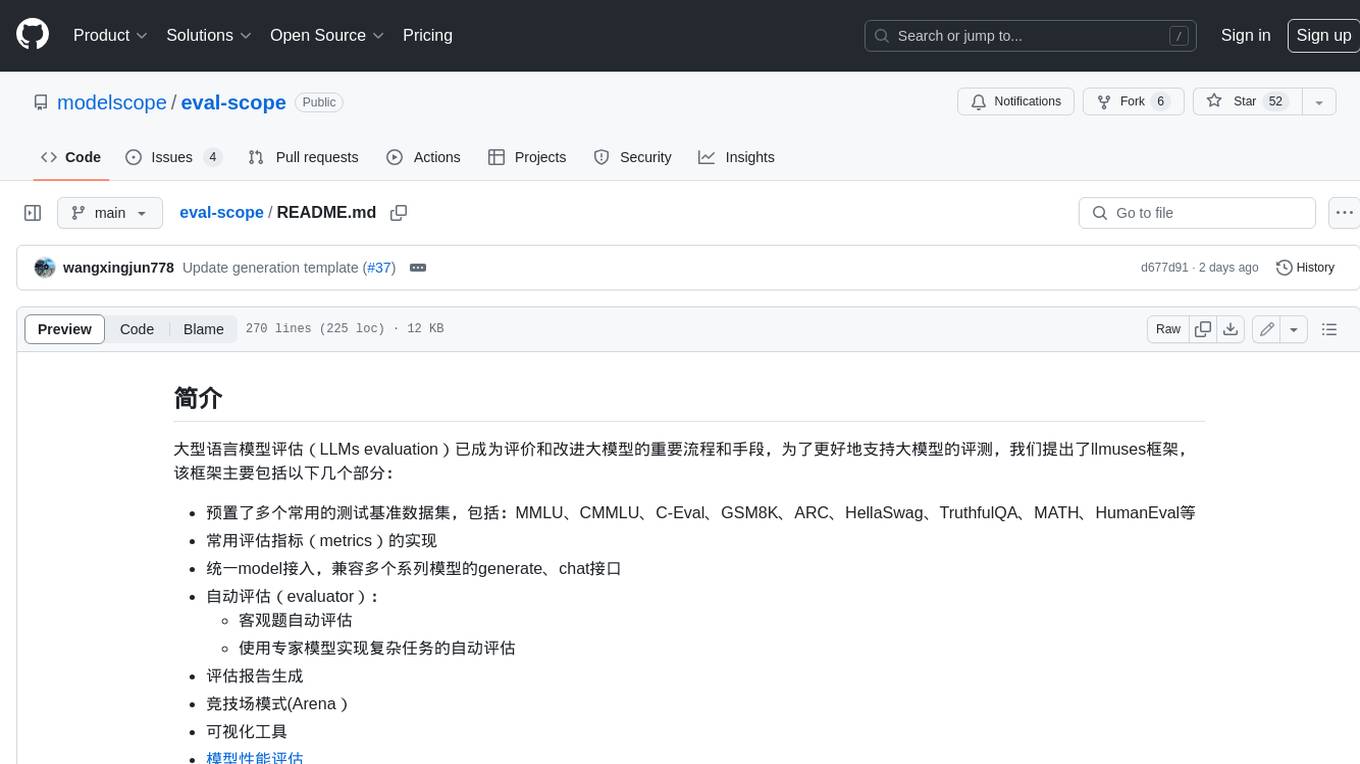
eval-scope
Eval-Scope is a framework for evaluating and improving large language models (LLMs). It provides a set of commonly used test datasets, metrics, and a unified model interface for generating and evaluating LLM responses. Eval-Scope also includes an automatic evaluator that can score objective questions and use expert models to evaluate complex tasks. Additionally, it offers a visual report generator, an arena mode for comparing multiple models, and a variety of other features to support LLM evaluation and development.
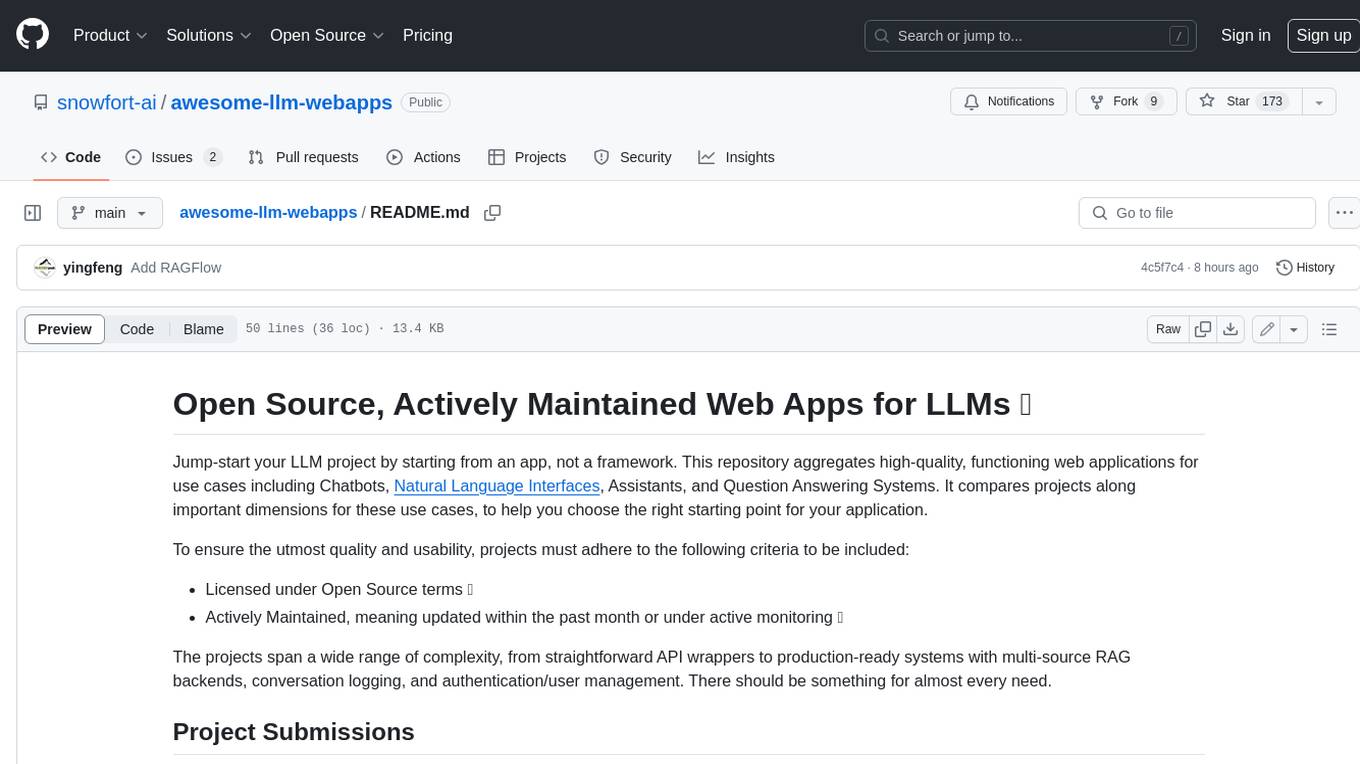
awesome-llm-webapps
This repository is a curated list of open-source, actively maintained web applications that leverage large language models (LLMs) for various use cases, including chatbots, natural language interfaces, assistants, and question answering systems. The projects are evaluated based on key criteria such as licensing, maintenance status, complexity, and features, to help users select the most suitable starting point for their LLM-based applications. The repository welcomes contributions and encourages users to submit projects that meet the criteria or suggest improvements to the existing list.
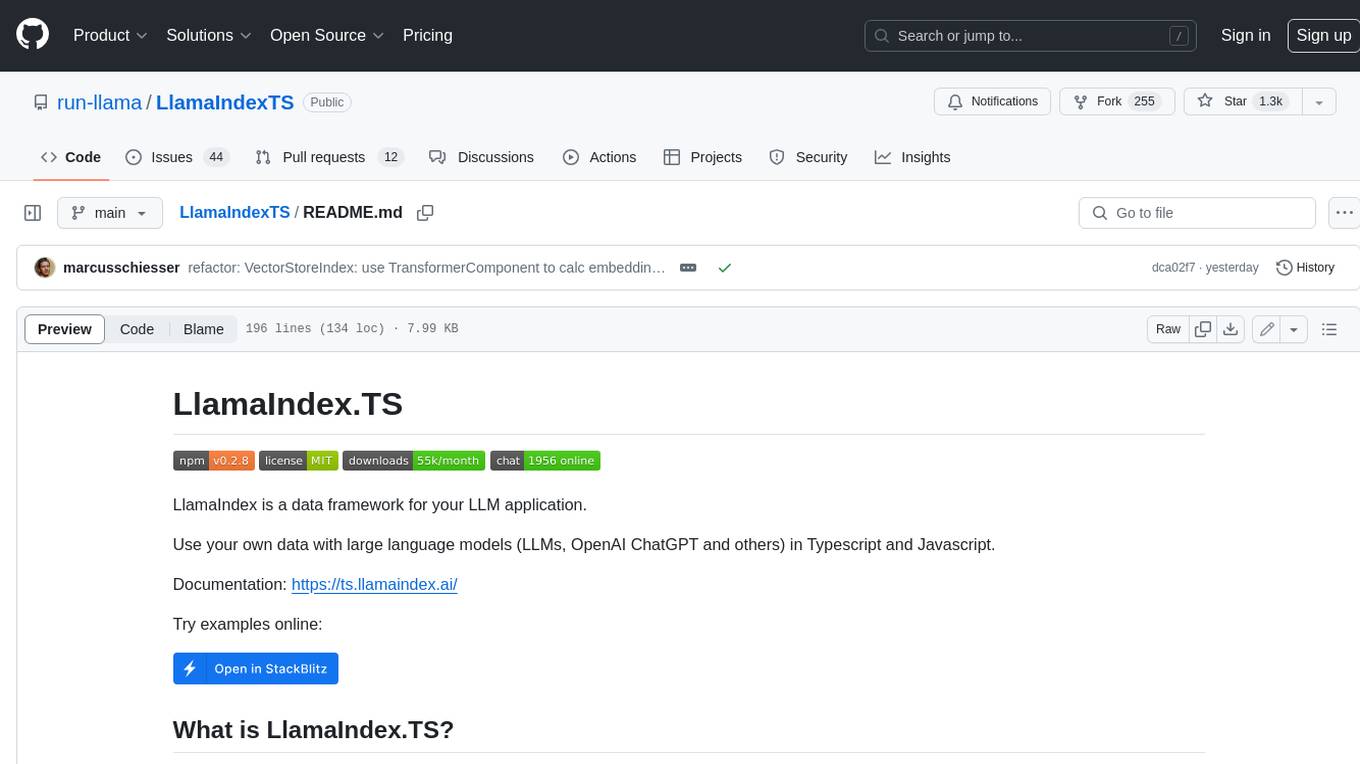
LlamaIndexTS
LlamaIndex.TS is a data framework for your LLM application. Use your own data with large language models (LLMs, OpenAI ChatGPT and others) in Typescript and Javascript.
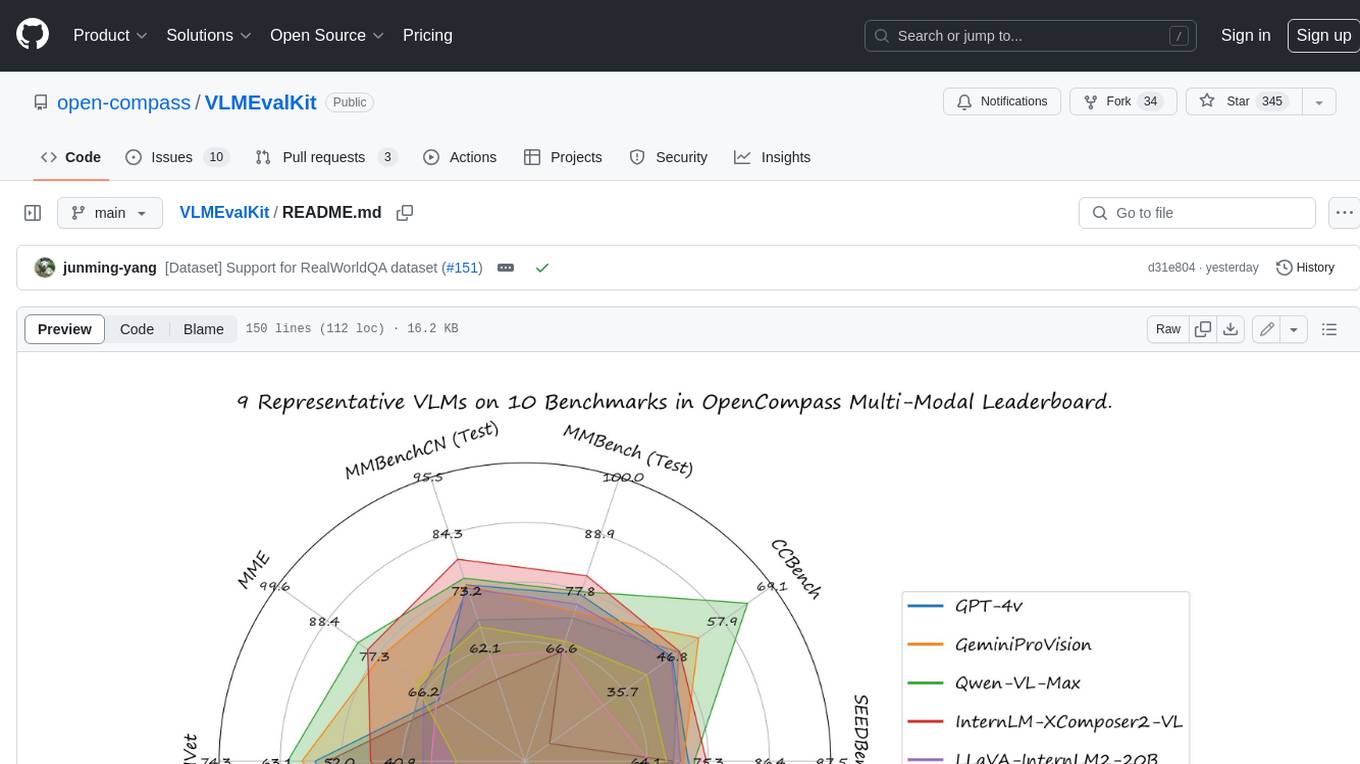
VLMEvalKit
VLMEvalKit is an open-source evaluation toolkit of large vision-language models (LVLMs). It enables one-command evaluation of LVLMs on various benchmarks, without the heavy workload of data preparation under multiple repositories. In VLMEvalKit, we adopt generation-based evaluation for all LVLMs, and provide the evaluation results obtained with both exact matching and LLM-based answer extraction.
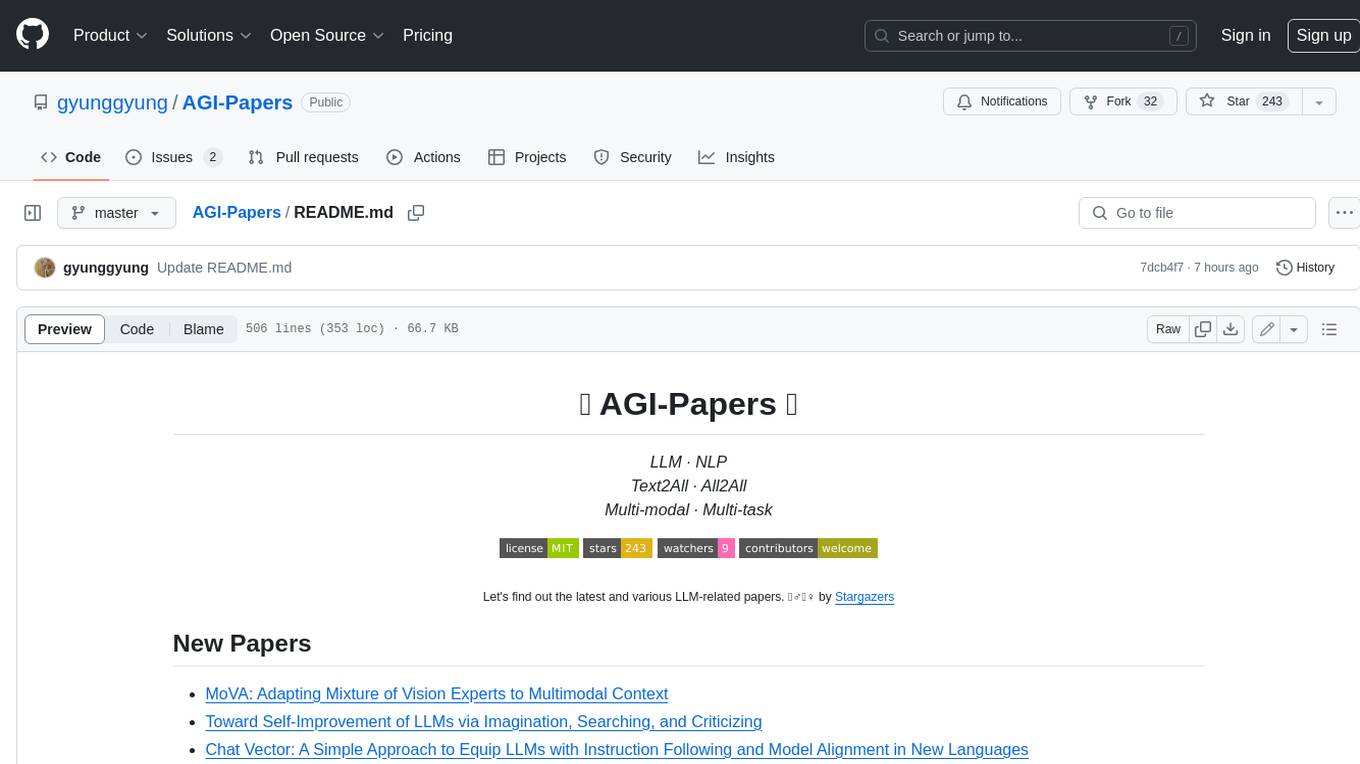
AGI-Papers
This repository contains a collection of papers and resources related to Large Language Models (LLMs), including their applications in various domains such as text generation, translation, question answering, and dialogue systems. The repository also includes discussions on the ethical and societal implications of LLMs. **Description** This repository is a collection of papers and resources related to Large Language Models (LLMs). LLMs are a type of artificial intelligence (AI) that can understand and generate human-like text. They have a wide range of applications, including text generation, translation, question answering, and dialogue systems. **For Jobs** - **Content Writer** - **Copywriter** - **Editor** - **Journalist** - **Marketer** **AI Keywords** - **Large Language Models** - **Natural Language Processing** - **Machine Learning** - **Artificial Intelligence** - **Deep Learning** **For Tasks** - **Generate text** - **Translate text** - **Answer questions** - **Engage in dialogue** - **Summarize text**
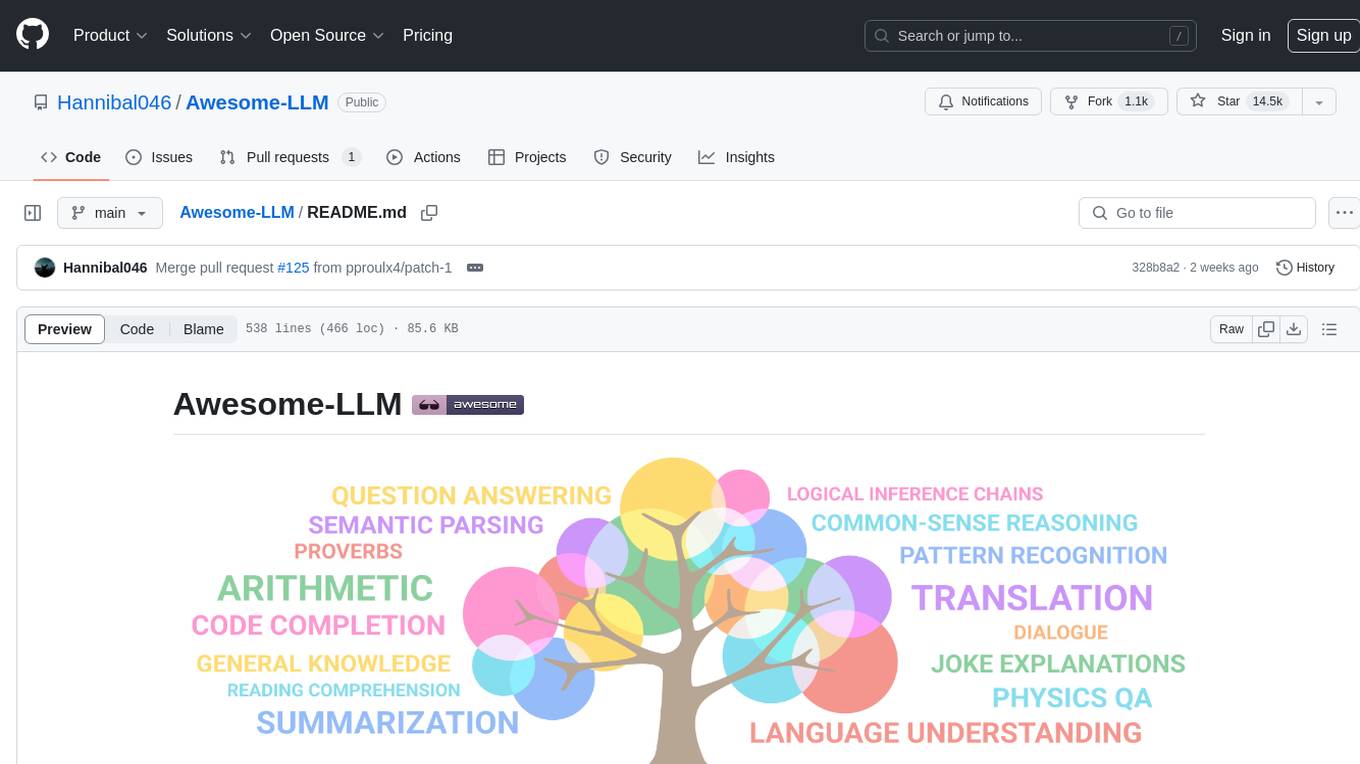
Awesome-LLM
Awesome-LLM is a curated list of resources related to large language models, focusing on papers, projects, frameworks, tools, tutorials, courses, opinions, and other useful resources in the field. It covers trending LLM projects, milestone papers, other papers, open LLM projects, LLM training frameworks, LLM evaluation frameworks, tools for deploying LLM, prompting libraries & tools, tutorials, courses, books, and opinions. The repository provides a comprehensive overview of the latest advancements and resources in the field of large language models.

llms-tools
The 'llms-tools' repository is a comprehensive collection of AI tools, open-source projects, and research related to Large Language Models (LLMs) and Chatbots. It covers a wide range of topics such as AI in various domains, open-source models, chats & assistants, visual language models, evaluation tools, libraries, devices, income models, text-to-image, computer vision, audio & speech, code & math, games, robotics, typography, bio & med, military, climate, finance, and presentation. The repository provides valuable resources for researchers, developers, and enthusiasts interested in exploring the capabilities of LLMs and related technologies.
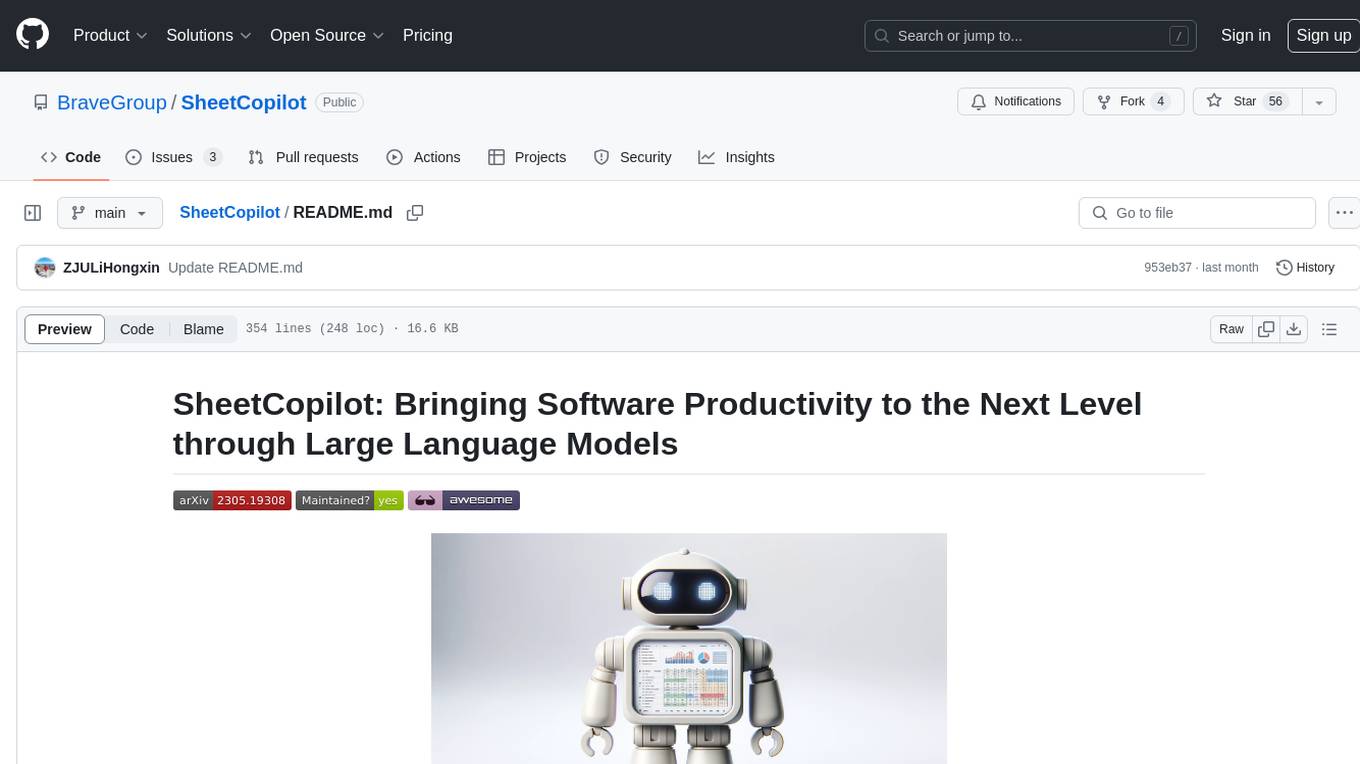
SheetCopilot
SheetCopilot is an assistant agent that manipulates spreadsheets by following user commands. It leverages Large Language Models (LLMs) to interact with spreadsheets like a human expert, enabling non-expert users to complete tasks on complex software such as Google Sheets and Excel via a language interface. The tool observes spreadsheet states, polishes generated solutions based on external action documents and error feedback, and aims to improve success rate and efficiency. SheetCopilot offers a dataset with diverse task categories and operations, supporting operations like entry & manipulation, management, formatting, charts, and pivot tables. Users can interact with SheetCopilot in Excel or Google Sheets, executing tasks like calculating revenue, creating pivot tables, and plotting charts. The tool's evaluation includes performance comparisons with leading LLMs and VBA-based methods on specific datasets, showcasing its capabilities in controlling various aspects of a spreadsheet.
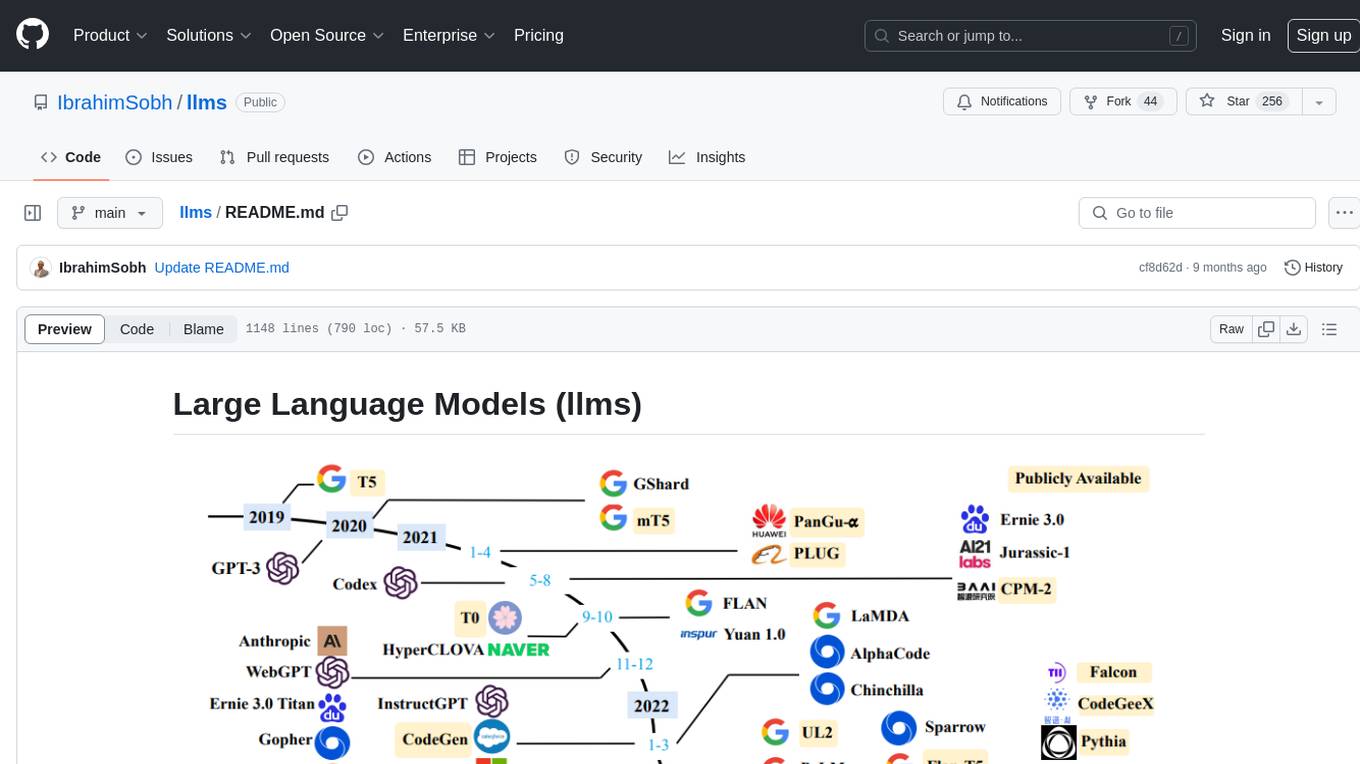
llms
The 'llms' repository is a comprehensive guide on Large Language Models (LLMs), covering topics such as language modeling, applications of LLMs, statistical language modeling, neural language models, conditional language models, evaluation methods, transformer-based language models, practical LLMs like GPT and BERT, prompt engineering, fine-tuning LLMs, retrieval augmented generation, AI agents, and LLMs for computer vision. The repository provides detailed explanations, examples, and tools for working with LLMs.
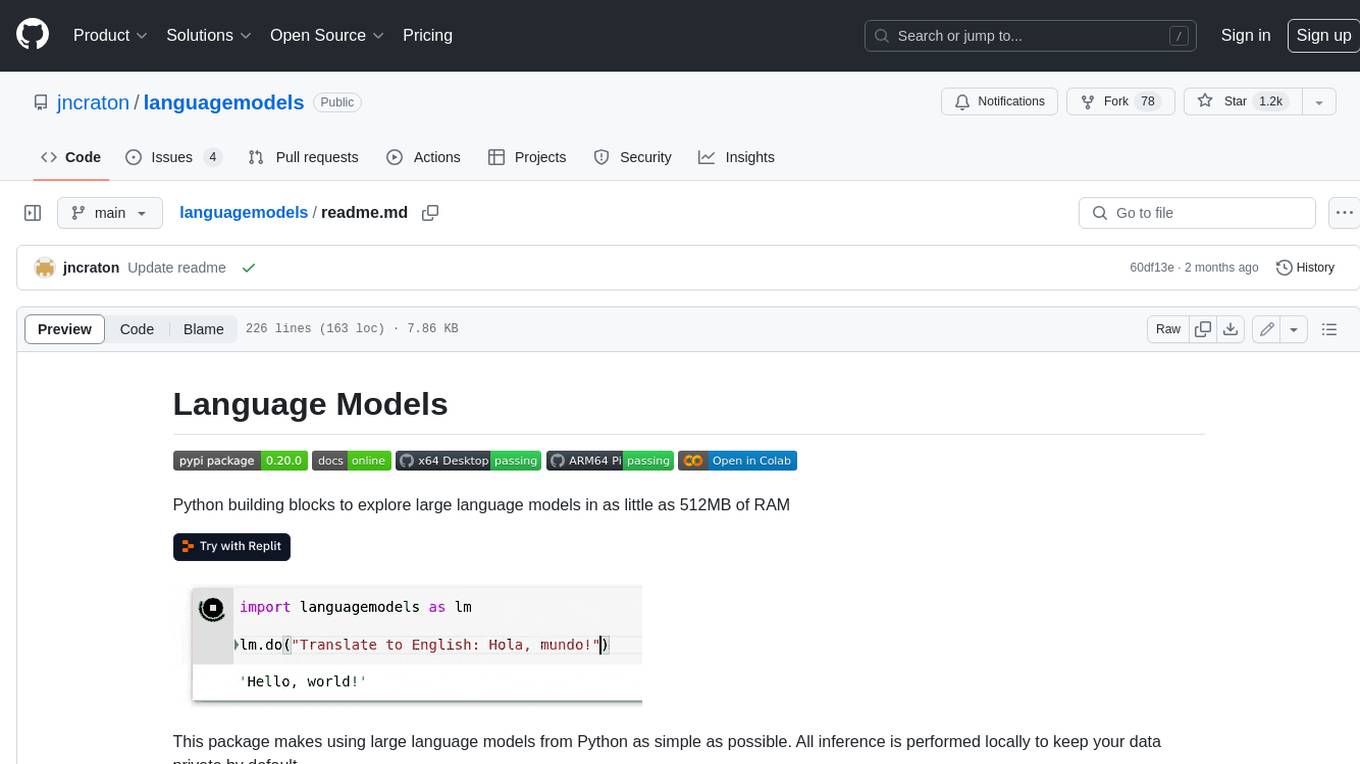
languagemodels
Language Models is a Python package that provides building blocks to explore large language models with as little as 512MB of RAM. It simplifies the usage of large language models from Python, ensuring all inference is performed locally to keep data private. The package includes features such as text completions, chat capabilities, code completions, external text retrieval, semantic search, and more. It outperforms Hugging Face transformers for CPU inference and offers sensible default models with varying parameters based on memory constraints. The package is suitable for learners and educators exploring the intersection of large language models with modern software development.
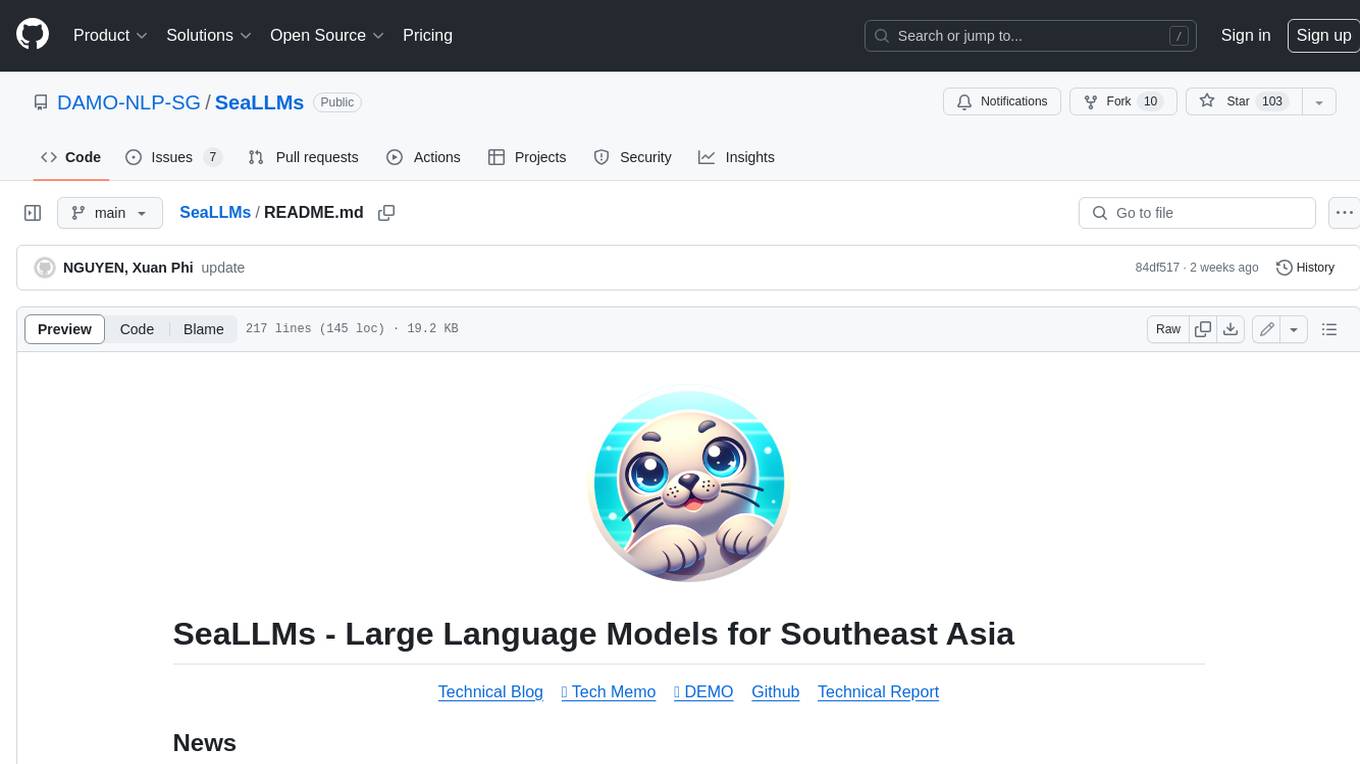
SeaLLMs
SeaLLMs are a family of language models optimized for Southeast Asian (SEA) languages. They were pre-trained from Llama-2, on a tailored publicly-available dataset, which comprises texts in Vietnamese 🇻🇳, Indonesian 🇮🇩, Thai 🇹🇭, Malay 🇲🇾, Khmer🇰🇭, Lao🇱🇦, Tagalog🇵🇭 and Burmese🇲🇲. The SeaLLM-chat underwent supervised finetuning (SFT) and specialized self-preferencing DPO using a mix of public instruction data and a small number of queries used by SEA language native speakers in natural settings, which **adapt to the local cultural norms, customs, styles and laws in these areas**. SeaLLM-13b models exhibit superior performance across a wide spectrum of linguistic tasks and assistant-style instruction-following capabilities relative to comparable open-source models. Moreover, they outperform **ChatGPT-3.5** in non-Latin languages, such as Thai, Khmer, Lao, and Burmese.
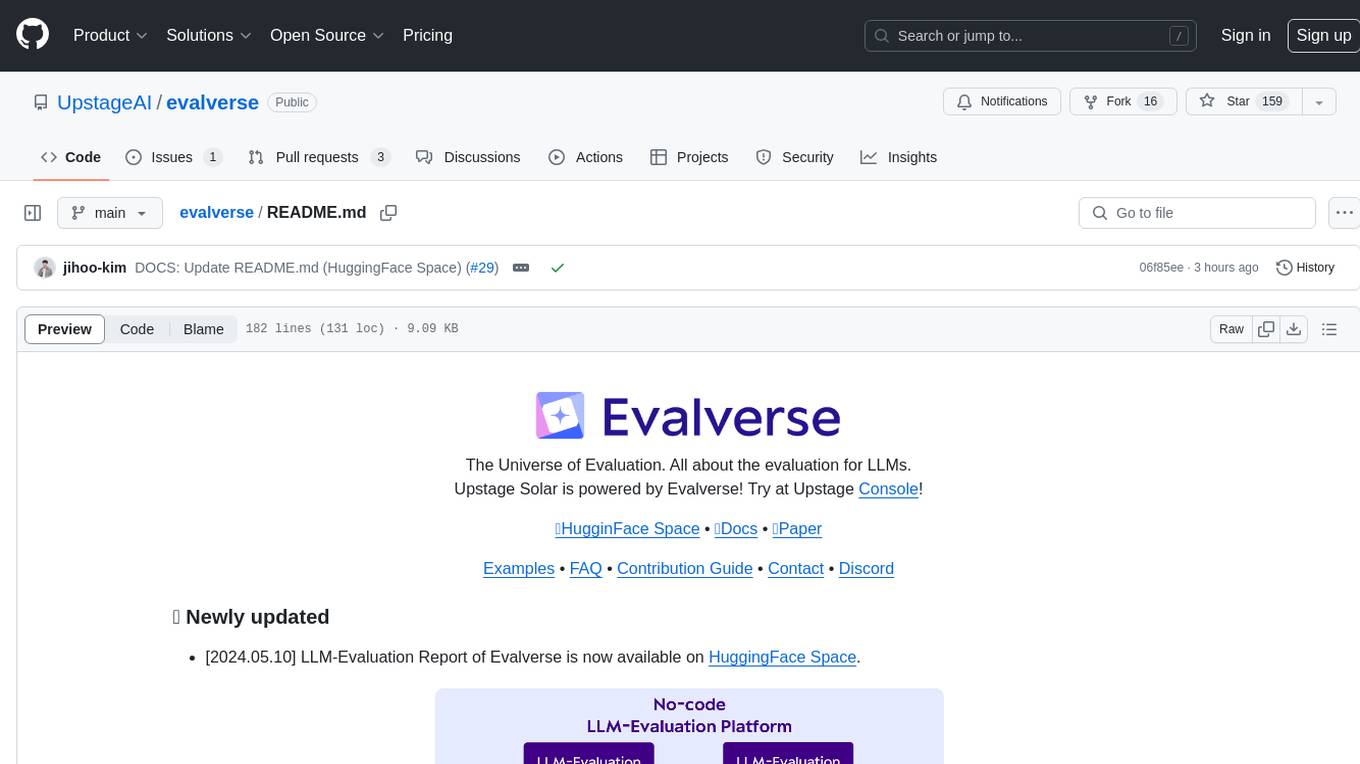
evalverse
Evalverse is an open-source project designed to support Large Language Model (LLM) evaluation needs. It provides a standardized and user-friendly solution for processing and managing LLM evaluations, catering to AI research engineers and scientists. Evalverse supports various evaluation methods, insightful reports, and no-code evaluation processes. Users can access unified evaluation with submodules, request evaluations without code via Slack bot, and obtain comprehensive reports with scores, rankings, and visuals. The tool allows for easy comparison of scores across different models and swift addition of new evaluation tools.
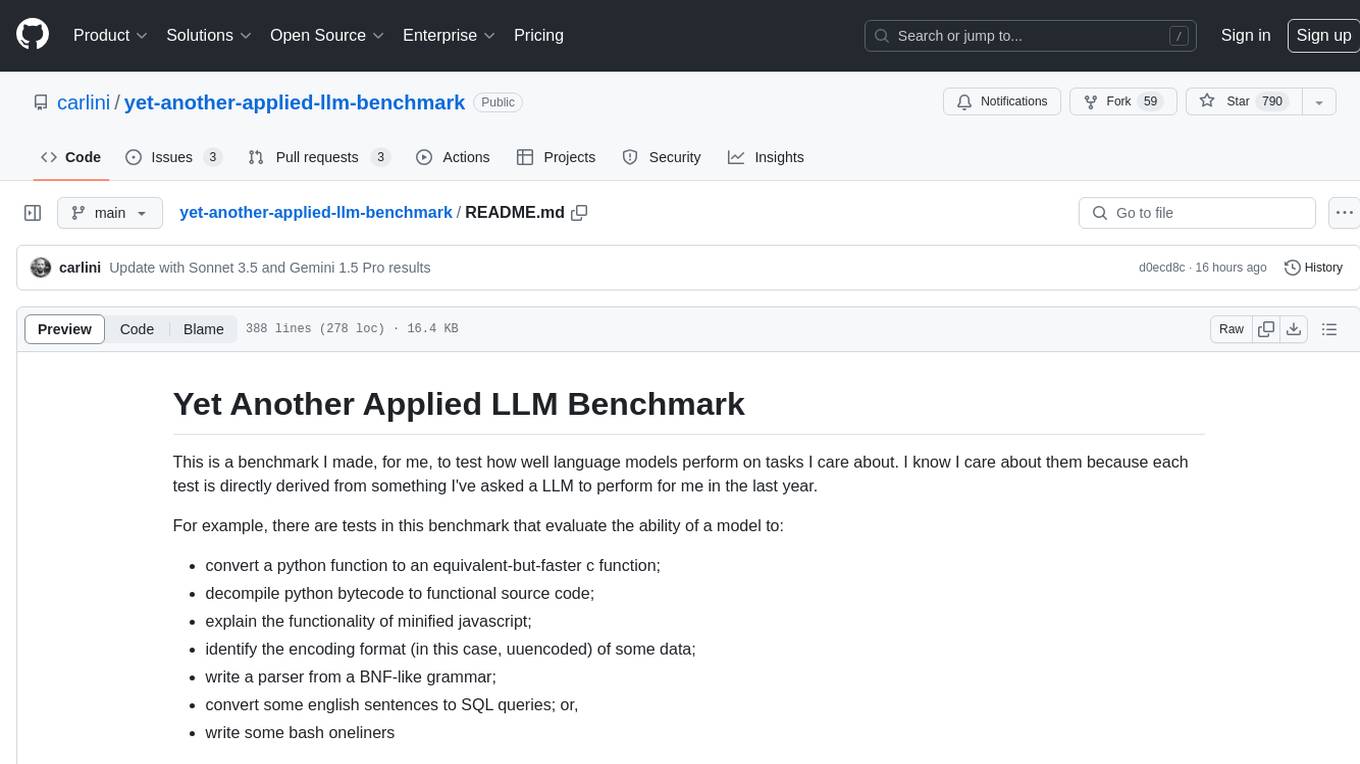
yet-another-applied-llm-benchmark
Yet Another Applied LLM Benchmark is a collection of diverse tests designed to evaluate the capabilities of language models in performing real-world tasks. The benchmark includes tests such as converting code, decompiling bytecode, explaining minified JavaScript, identifying encoding formats, writing parsers, and generating SQL queries. It features a dataflow domain-specific language for easily adding new tests and has nearly 100 tests based on actual scenarios encountered when working with language models. The benchmark aims to assess whether models can effectively handle tasks that users genuinely care about.
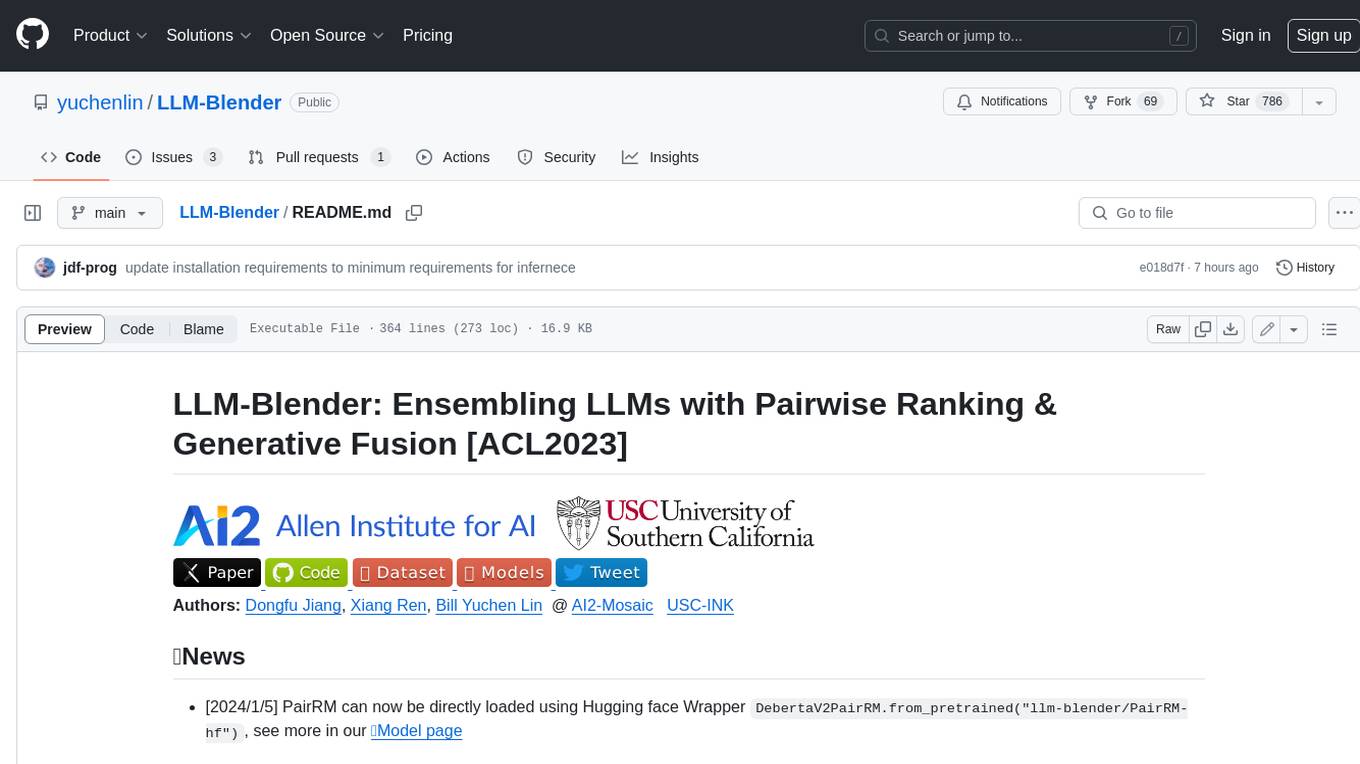
LLM-Blender
LLM-Blender is a framework for ensembling large language models (LLMs) to achieve superior performance. It consists of two modules: PairRanker and GenFuser. PairRanker uses pairwise comparisons to distinguish between candidate outputs, while GenFuser merges the top-ranked candidates to create an improved output. LLM-Blender has been shown to significantly surpass the best LLMs and baseline ensembling methods across various metrics on the MixInstruct benchmark dataset.
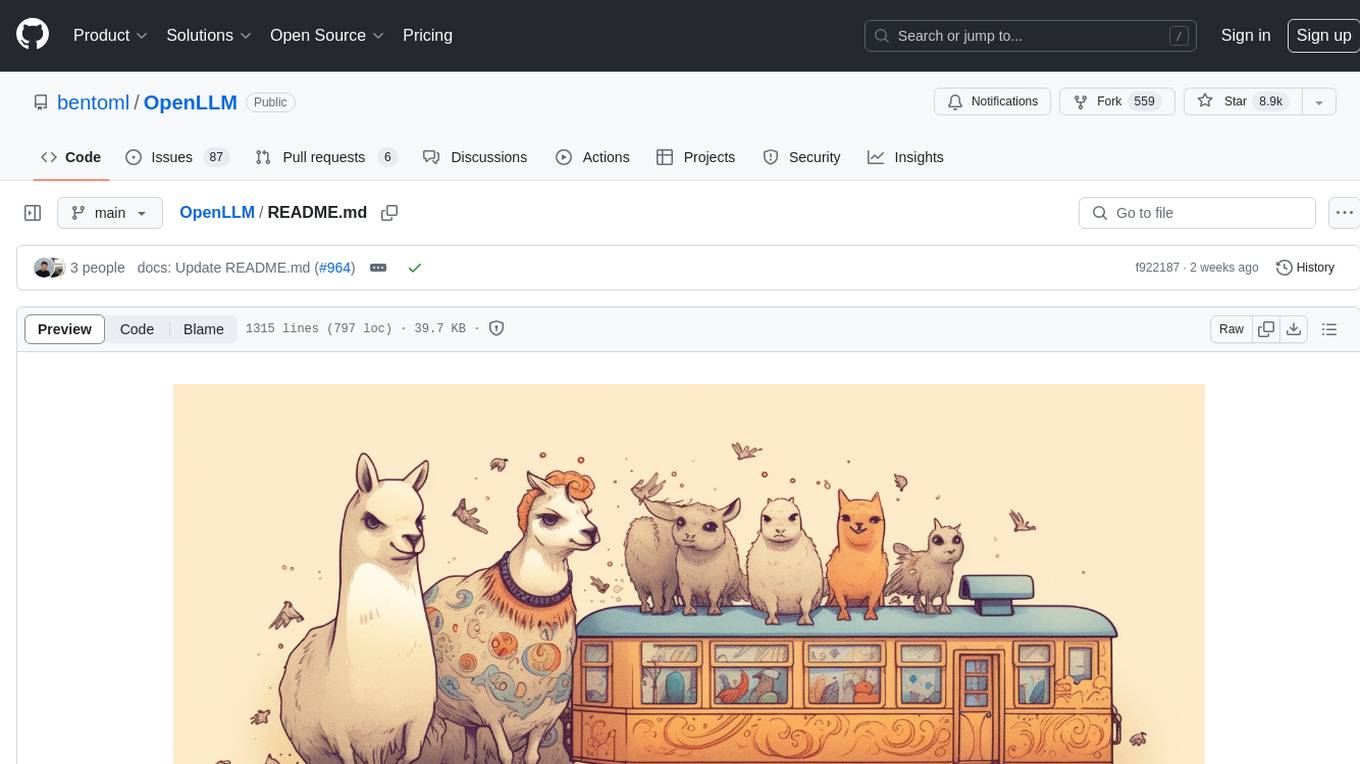
OpenLLM
OpenLLM is a platform that helps developers run any open-source Large Language Models (LLMs) as OpenAI-compatible API endpoints, locally and in the cloud. It supports a wide range of LLMs, provides state-of-the-art serving and inference performance, and simplifies cloud deployment via BentoML. Users can fine-tune, serve, deploy, and monitor any LLMs with ease using OpenLLM. The platform also supports various quantization techniques, serving fine-tuning layers, and multiple runtime implementations. OpenLLM seamlessly integrates with other tools like OpenAI Compatible Endpoints, LlamaIndex, LangChain, and Transformers Agents. It offers deployment options through Docker containers, BentoCloud, and provides a community for collaboration and contributions.
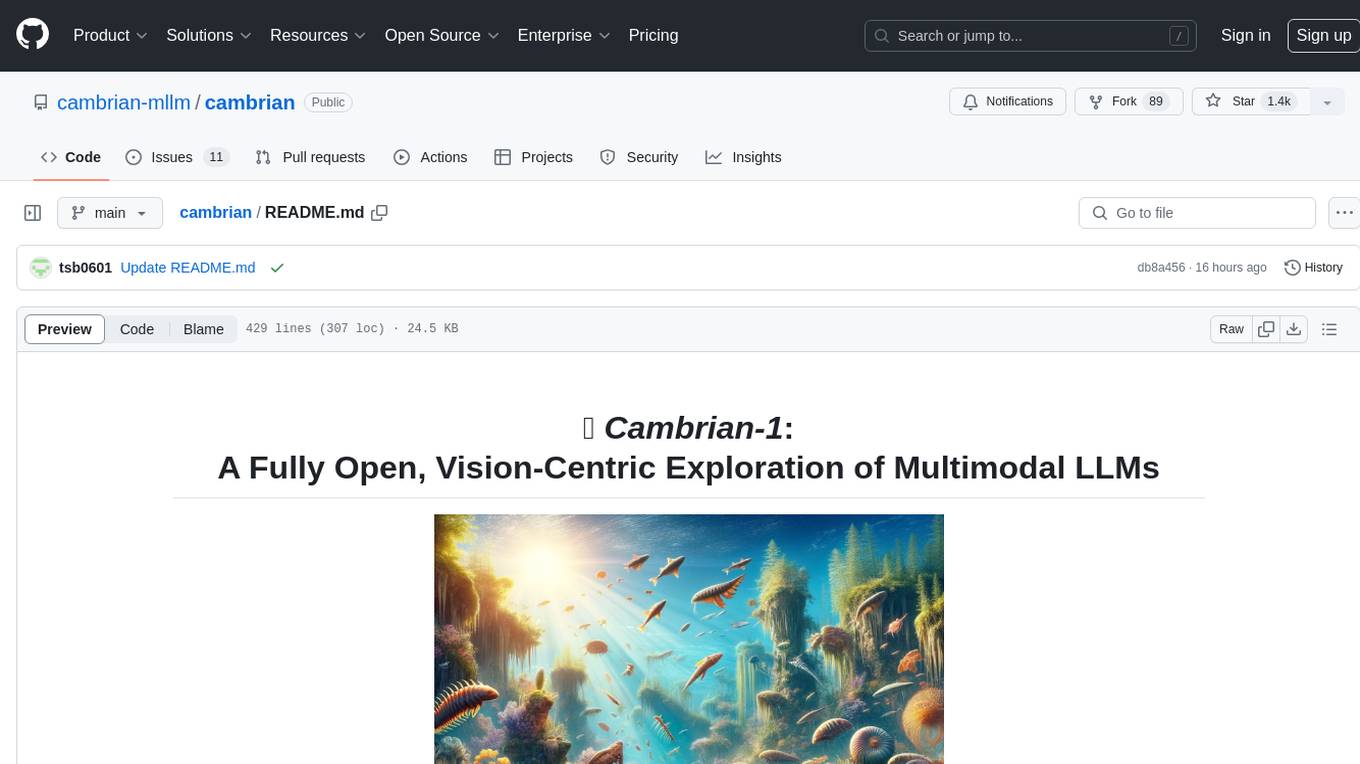
cambrian
Cambrian-1 is a fully open project focused on exploring multimodal Large Language Models (LLMs) with a vision-centric approach. It offers competitive performance across various benchmarks with models at different parameter levels. The project includes training configurations, model weights, instruction tuning data, and evaluation details. Users can interact with Cambrian-1 through a Gradio web interface for inference. The project is inspired by LLaVA and incorporates contributions from Vicuna, LLaMA, and Yi. Cambrian-1 is licensed under Apache 2.0 and utilizes datasets and checkpoints subject to their respective original licenses.
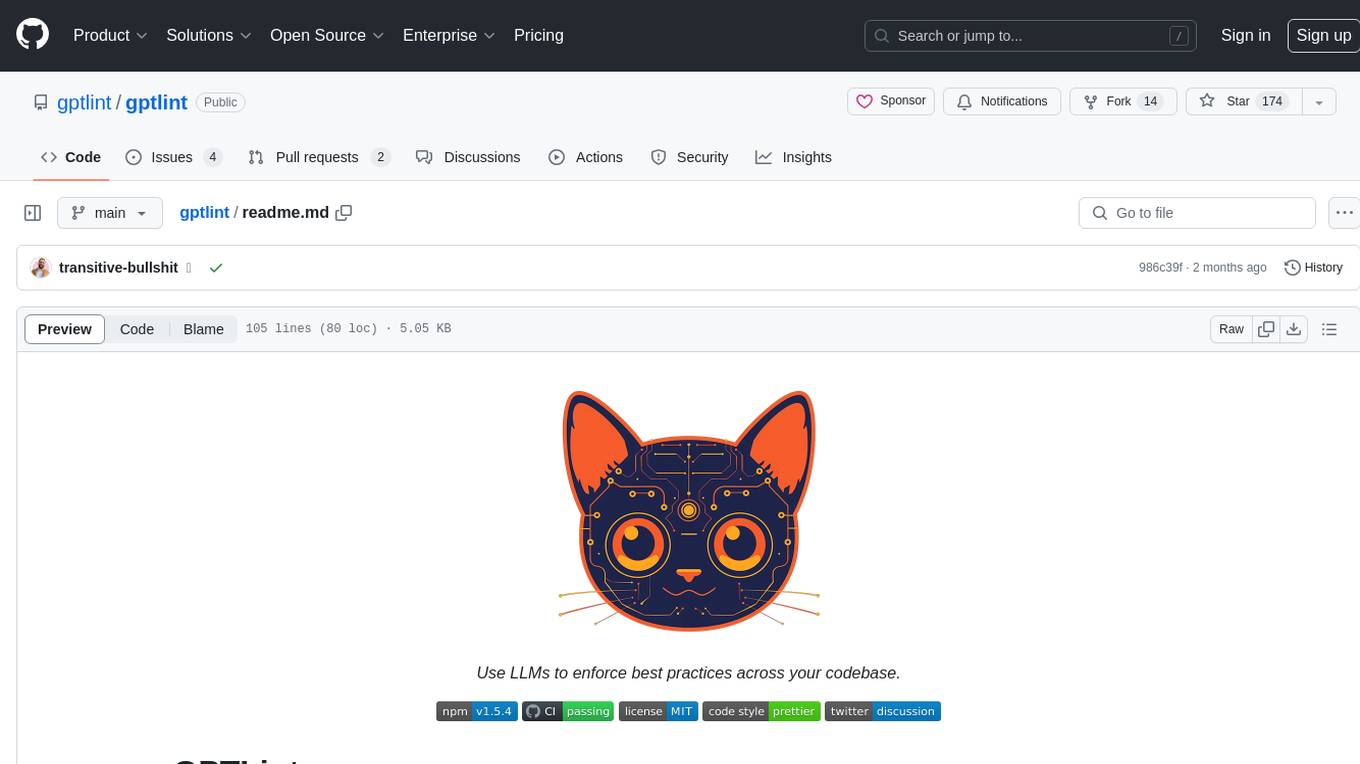
gptlint
GPTLint is a tool that utilizes Large Language Models (LLMs) to enforce higher-level best practices across a codebase. It offers features such as enforcing rules that are impossible with AST-based approaches, simple markdown format for rules, easy customization of rules, support for custom project-specific rules, content-based caching, and outputting LLM stats per run. GPTLint supports all major LLM providers and local models, augments ESLint instead of replacing it, and includes guidelines for creating custom rules. However, the MVP rules are currently limited to JS/TS only, single-file context only, and do not support autofixing.
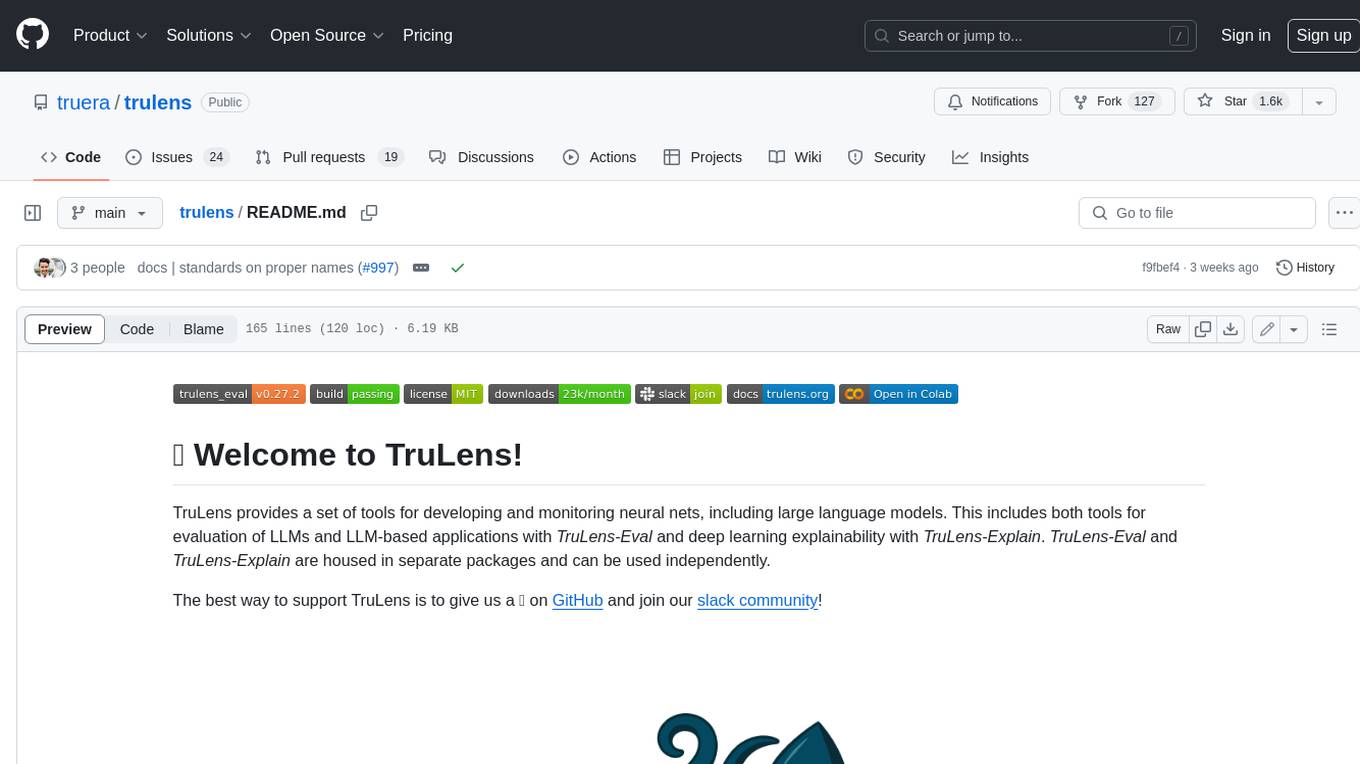
trulens
TruLens provides a set of tools for developing and monitoring neural nets, including large language models. This includes both tools for evaluation of LLMs and LLM-based applications with _TruLens-Eval_ and deep learning explainability with _TruLens-Explain_. _TruLens-Eval_ and _TruLens-Explain_ are housed in separate packages and can be used independently.
20 - OpenAI Gpts
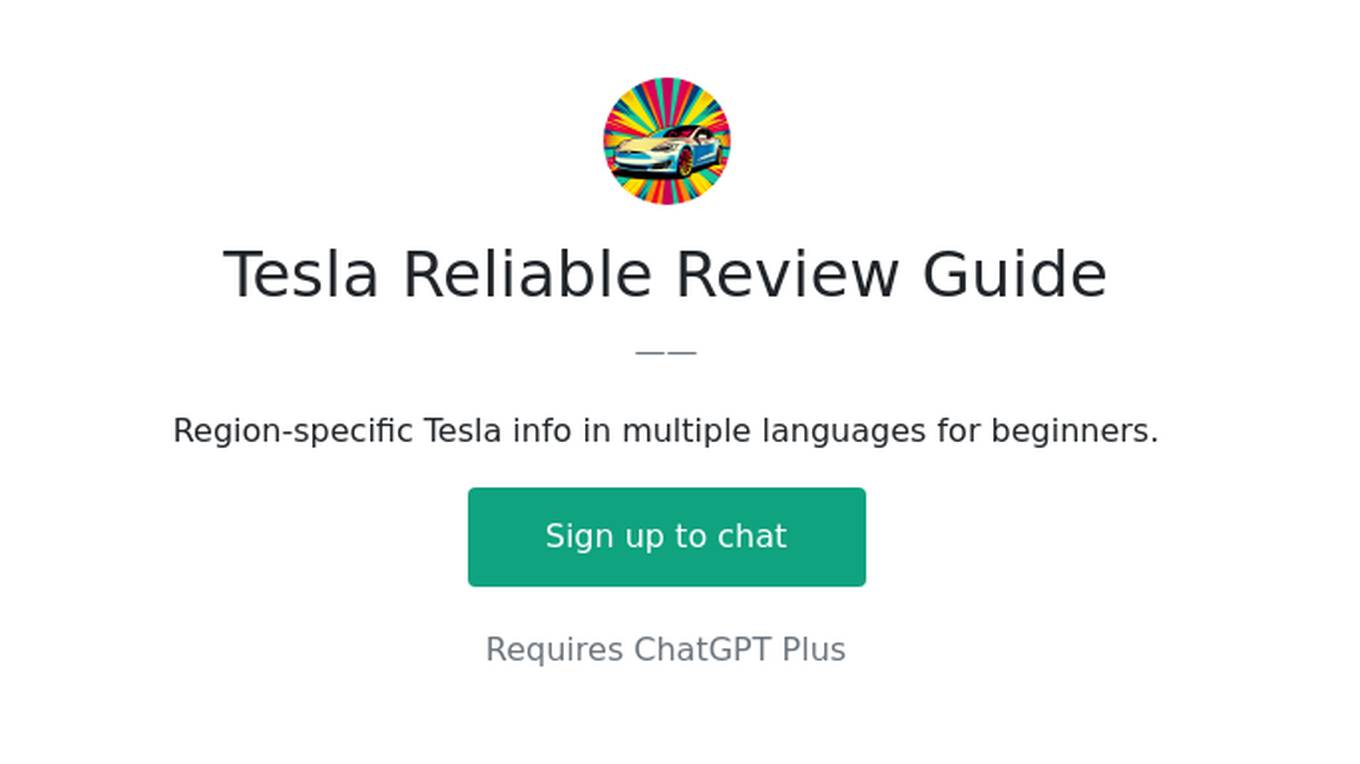
Tesla Reliable Review Guide
Region-specific Tesla info in multiple languages for beginners.
Best price kuwait
A customized GPT model for price comparison would search and compare product prices on websites in Kuwait, tailored to local markets and languages.
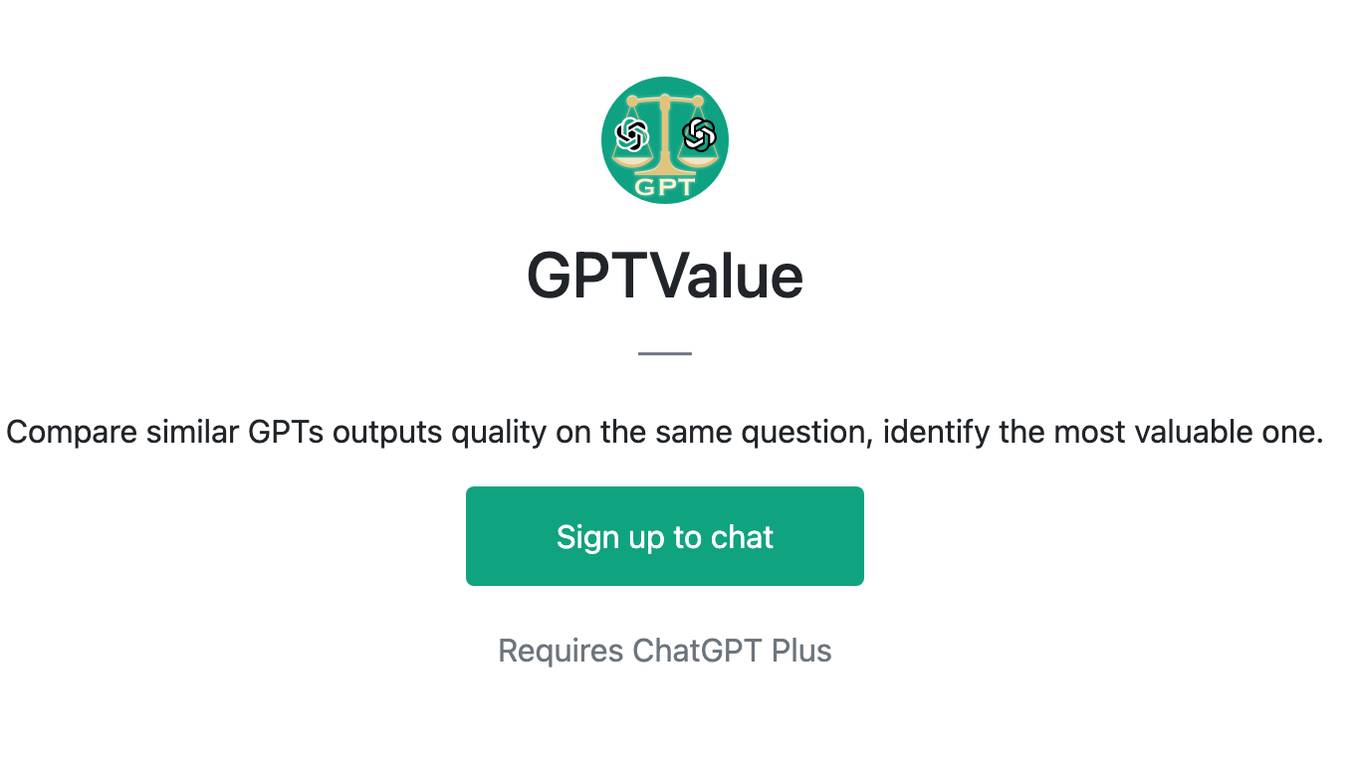
GPTValue
Compare similar GPTs outputs quality on the same question, identify the most valuable one.
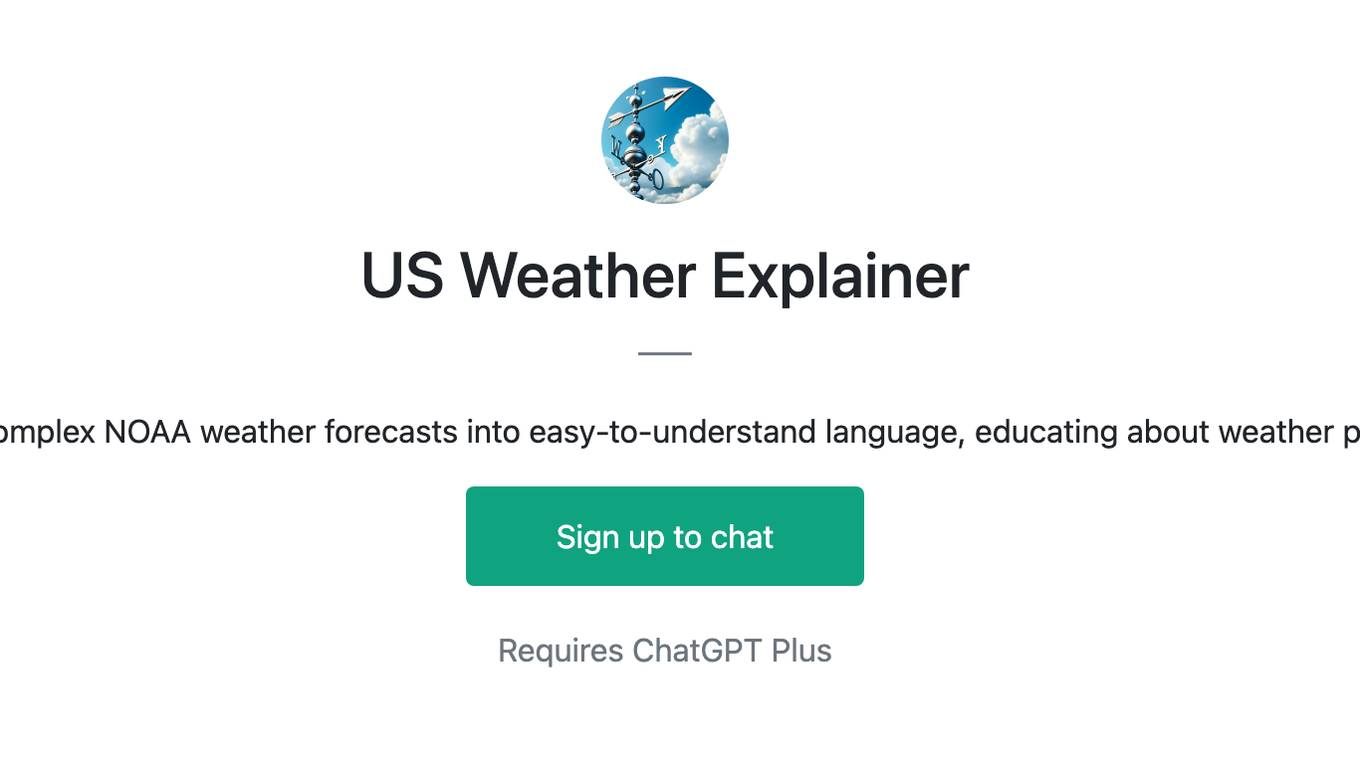
US Weather Explainer
I transform complex NOAA weather forecasts into easy-to-understand language, educating about weather phenomena.
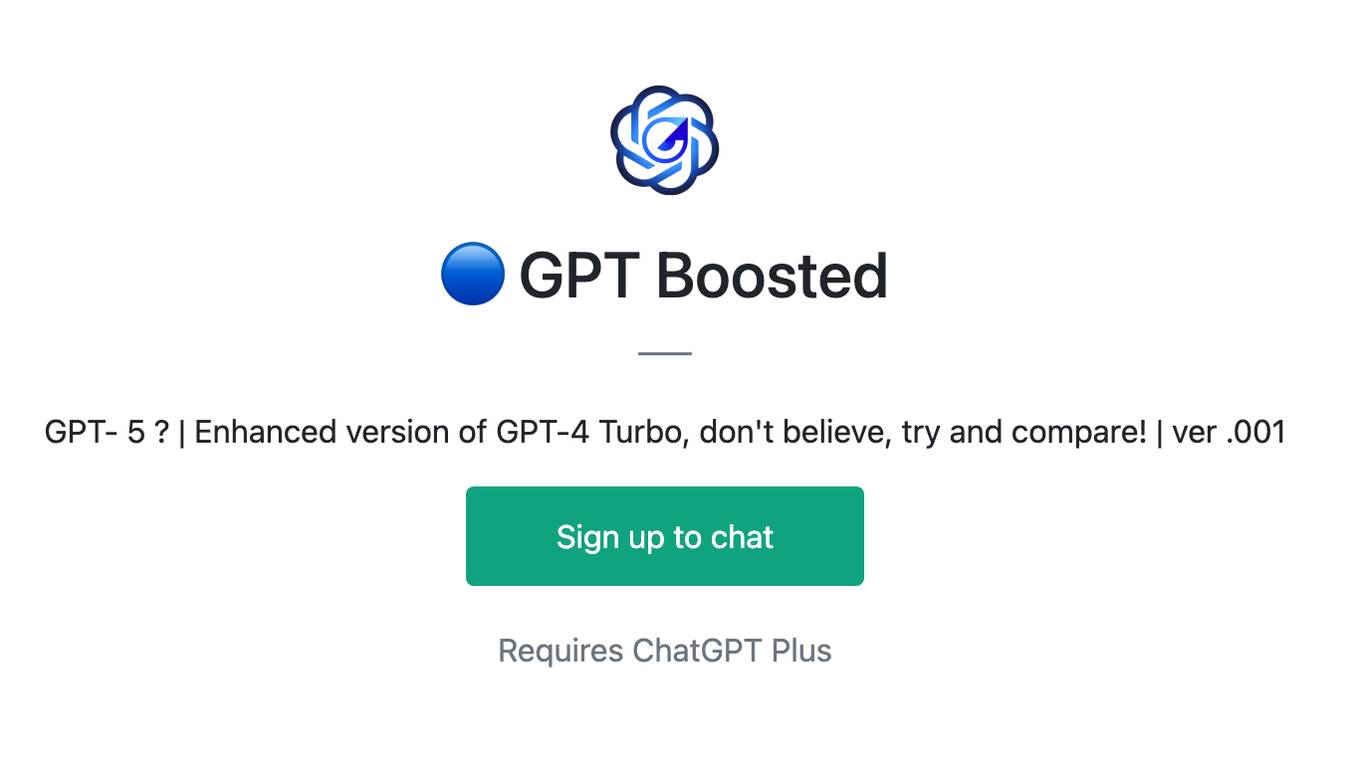
🔵 GPT Boosted
GPT- 5 ? | Enhanced version of GPT-4 Turbo, don't believe, try and compare! | ver .001
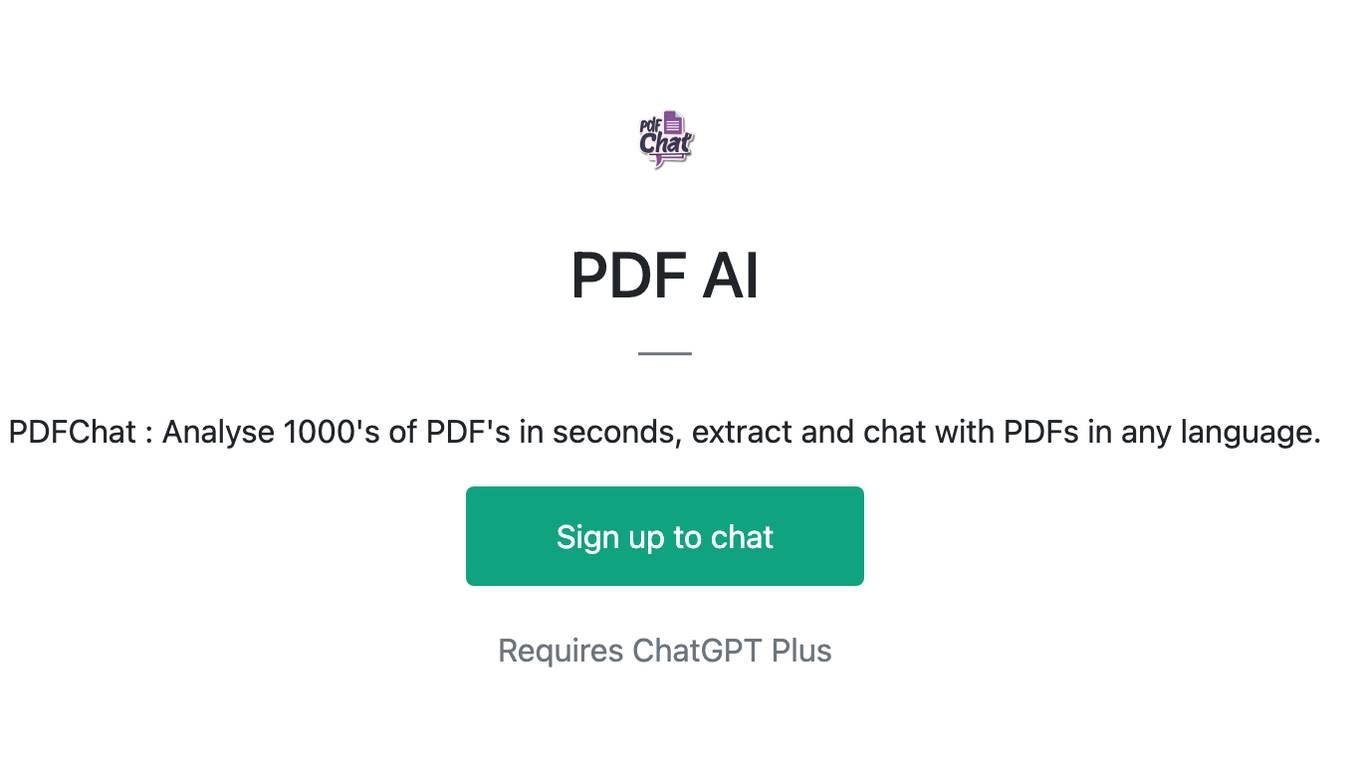
PDF AI
PDFChat : Analyse 1000's of PDF's in seconds, extract and chat with PDFs in any language.
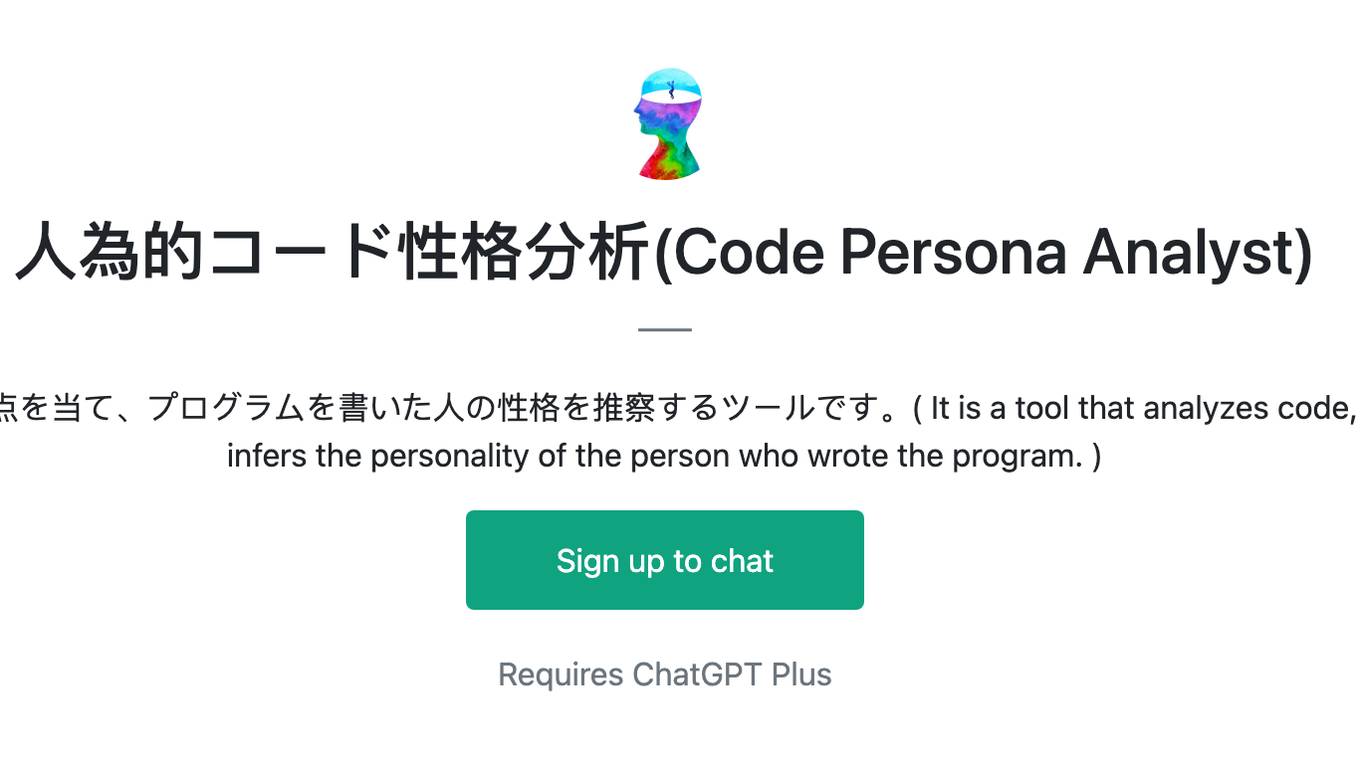
人為的コード性格分析(Code Persona Analyst)
コードを分析し、言語ではなくスタイルに焦点を当て、プログラムを書いた人の性格を推察するツールです。( It is a tool that analyzes code, focuses on style rather than language, and infers the personality of the person who wrote the program. )

Smart Shopper AI by ShoppingExclusives.com
An expert in personalized product recommendations for customers. An Uply Media, Inc. brand.
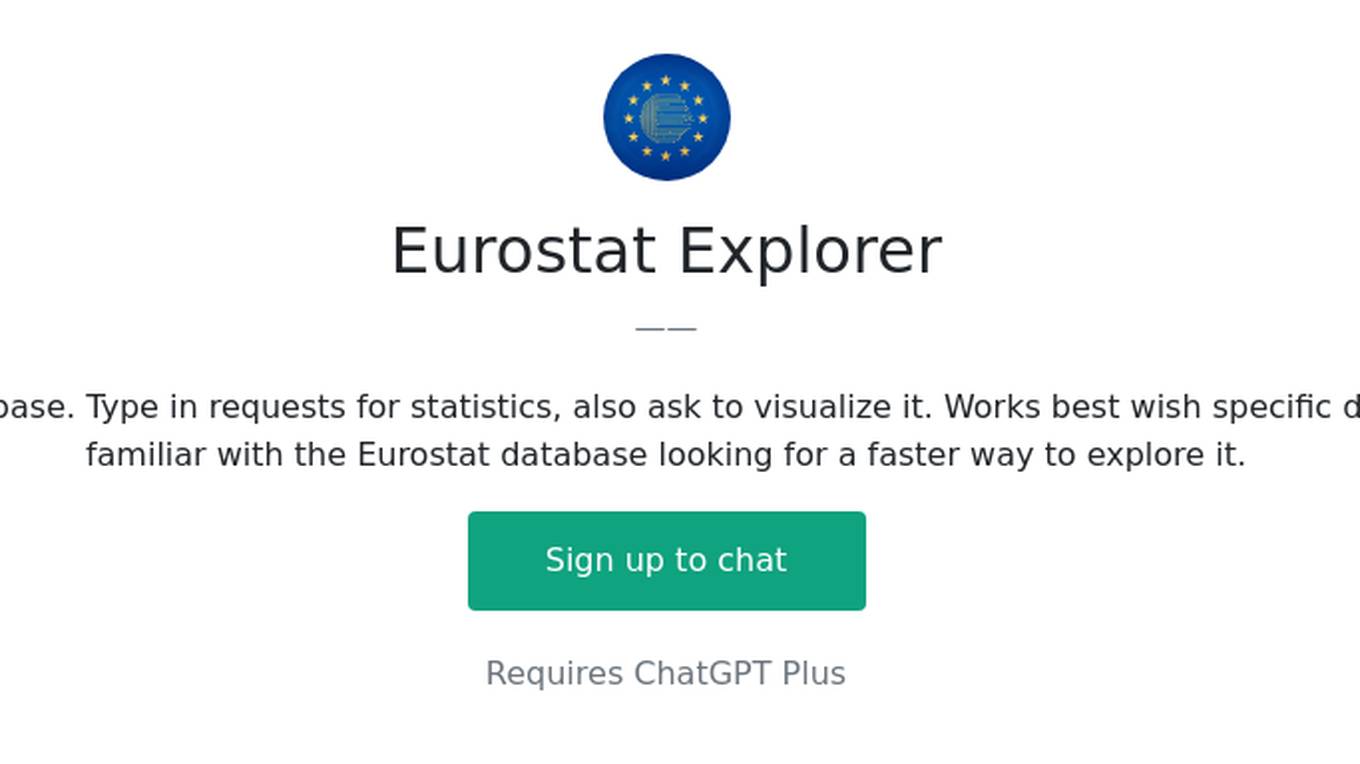
Eurostat Explorer
Explore & interpret the Eurostat database. Type in requests for statistics, also ask to visualize it. Works best wish specific datasets. It's meant for professionals familiar with the Eurostat database looking for a faster way to explore it.
